Rechercher dans ce blog
Wednesday, February 28, 2018
Ghani Offers Conditional Legitimacy to Afghan Taliban
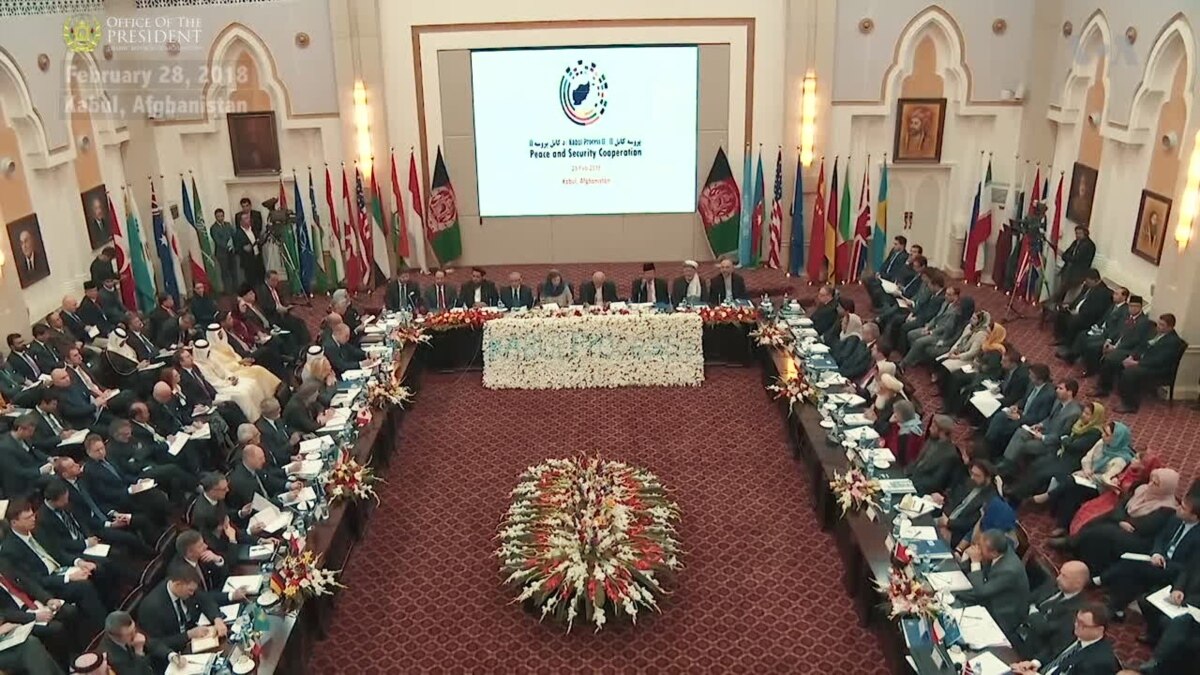
Afghan President Ashraf Ghani offered unconditional peace talks with the Afghan Taliban on Wednesday during the Kabul Process Conference in the nation's capital, and he asked for a cease-fire. The Afghan leader also pledged to recognize the insurgent group as a legitimate political party if it agrees to give up violence. VOA's Mohammad Habibzada reports.
Victims Group Shuns Indonesia Attacks Reconciliation Event
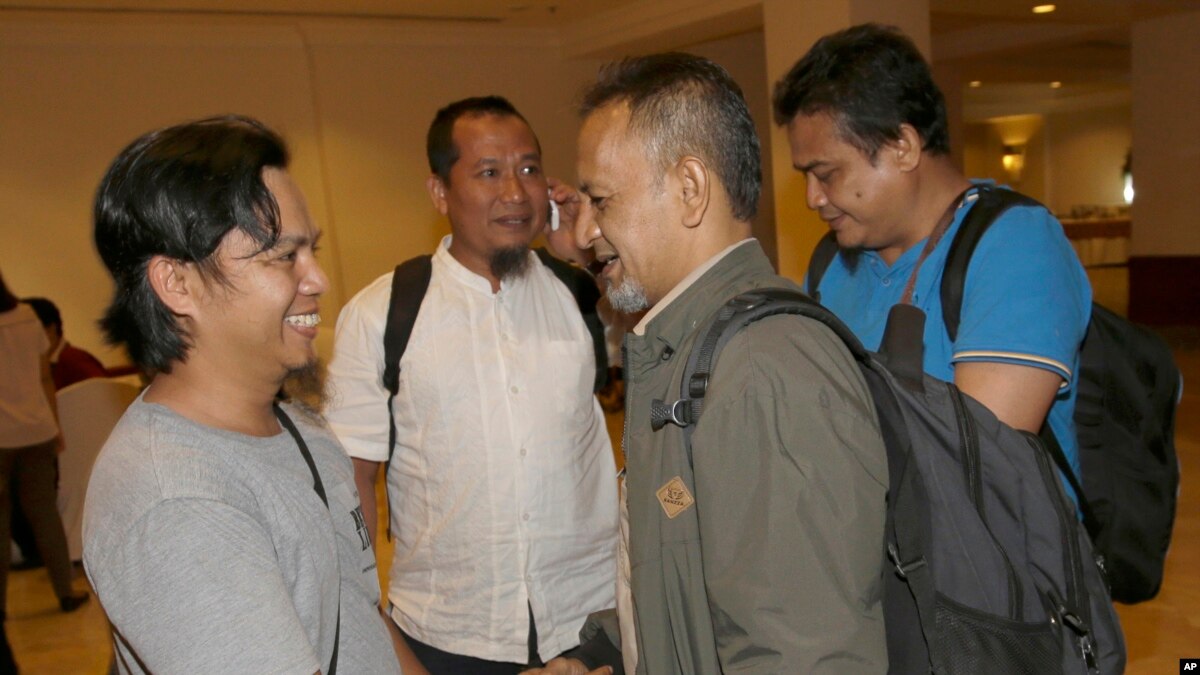
One of the main Indonesian groups for survivors of terror attacks has refused to participate in what it says is a flawed government-organized “reconciliation” meeting between former Islamic militants and victims.
The three days of meetings between dozens of ex-militants and victims has its finale on Wednesday with speeches by seven government ministers, the singing of the national anthem, prayers and the screening of videos showing parts of the previous two days, which were closed to the media.
Sucipto Hari Wibowo, co-founder of the Indonesian Survivors Foundation, said the government has good intentions but many survivors have yet to come to terms with what happened to them let alone face the people responsible.
The rights of victims are “more important than a reconciliation held under the spotlight,” he told The Associated Press.
Officials have billed the event as an important step in combating radicalism and fostering reconciliation.
Indonesia has imprisoned hundreds of Islamic militants in the years since the 2002 Bali bombings that killed more than 200 people, mostly foreigners.
But its efforts at convincing them to renounce violence have had mixed results. In overcrowded and understaffed prisons, militants have been able to convert other prisoners to radicalism and communicate with supporters on the outside to encourage new attacks that they believe will advance their cause of transforming Indonesia, the world’s most populous Muslim nation, into an Islamic state.
At least 18 former militant prisoners have been involved in attacks in Indonesia since 2010, including a January 2016 suicide bombing and gun attack in downtown Jakarta that killed eight people, including the attackers.
Wibowo, a survivor of the 2004 bombing of the Australian Embassy in Jakarta, said many of the people under the umbrella of his group, which goes by the Indonesian acronym YPI, are psychologically unprepared to meet attackers, particularly in the big numbers participating in the government event.
“A public reconciliation would definitely involve high emotional pressure for some victims,” he said. “Even though many of them (the militants) have shown and expressed deep remorse and want to change, they have caused these people’s disabilities and the loss of their husbands, wives, parents, children and siblings.”
“After a decade, perhaps we have finished reconciling with ourselves, we can accept what happened to us, but to reconcile with the attackers is a different matter, it needs a different process,” he said.
Jan Laczynski, an Australian who lost five friends to the bombing of the Sari Club in Bali and narrowly avoided being at the venue himself, said his 2015 meeting with one of the perpetrators was a frustrating experience because it didn’t provide any answers.
He doubts meetings with reformed militants can result in any release of pain or anger for victims.
“It’s going to reopen wounds,” he said of the Jakarta event. “The hurt is still there, the anger is still there, the pain is still there.”
A measure of that feeling, he said, was the overwhelming amount of thanks he received from Australians and Indonesians to a video of the 2015 meeting that showed him refusing to shake the hand of Ali Imron, the driver of a vehicle and its deadly payload that exploded outside the Sari Club.
Yet the co-founder of another victims group that is participating in the reconciliation meetings, the Indonesian Bombing Victims Association, said forgiveness had resolved an overwhelming anger that had hampered his recovery.
“We cannot force the victims to come as there are also some militants who are not willing to come,” said Febby Firmansyah Isran, who suffered burns to 45 percent of his body from the 2003 bombing of the J.W. Marriot hotel in Jakarta.
“For me, holding a grudge is just useless. It cannot change the impact I suffered, it’s better to accept it as destiny,” he told the AP earlier this week.
Speaking at the Jakarta event, the chief of Indonesia’s counterterrorism agency acknowledged criticism from survivors that the Indonesian government only gives attention to convicted militants it hopes to reform.
Suhardi Alius said there is no legal framework for providing compensation to victims who often also require costly long-term medical treatment.
Compensation is being discussed as part of amendments to the country’s counterterrorism law, he said. The draft law has been stalled in Indonesia’s parliament for several years, partly over fears it hands too much power to police.
“Some need medical treatment for a long time,” Alius said. “We are trying to make such treatment unlimited by time and done at maximum standards. Efforts to collect funds to compensate the survivors hopefully will not be hampered by bureaucracy in the future.”
Read More Victims Group Shuns Indonesia Attacks Reconciliation Event : http://ift.tt/2FDEVWAMaldives Denies Japan's Allegation That it Breached North Korean Sanctions
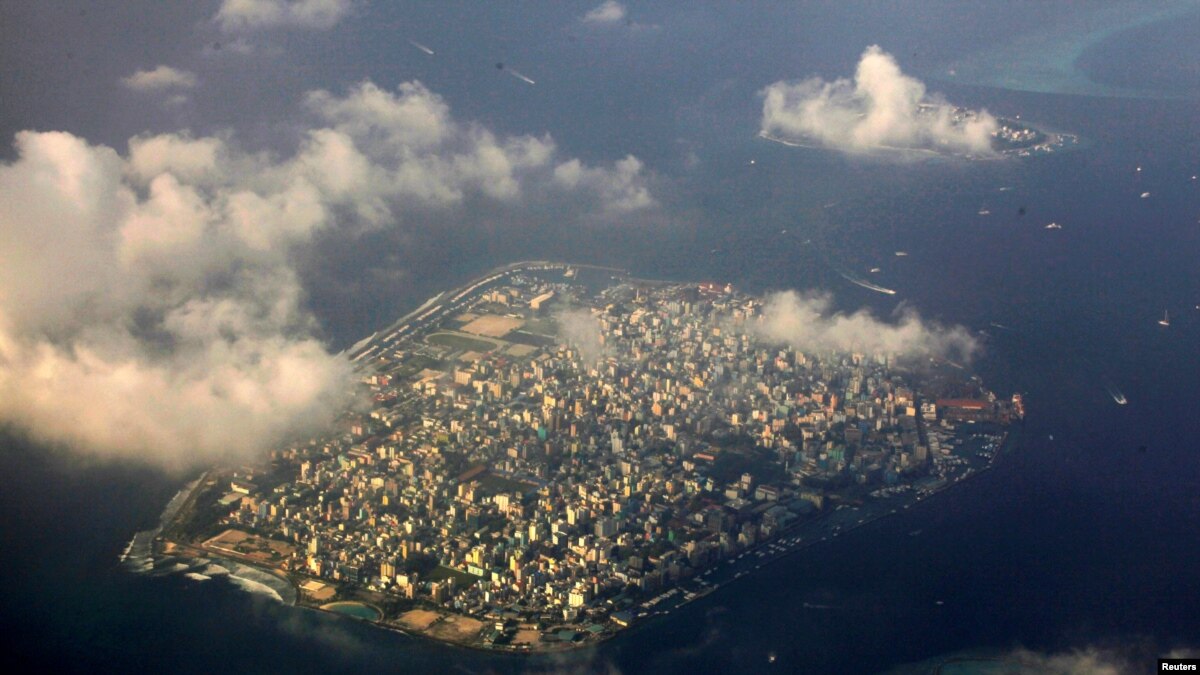
Maldives on Wednesday denied a Japanese foreign ministry statement that said a Maldives-flagged vessel was used to illegally transfer goods from a North Korean-flagged tanker in defiance of U.N. Security Council resolutions.
The Japanese statement said the “Chon Ma San”, designated by the United States as a sanctions target, was spotted by a surveillance plane with the Maldivian-flagged tanker “Xin Yuan 18” some 250 km (160 miles) east of Shanghai on Saturday.
It said “Japan strongly suspects that the vessels conducted ship-to-ship transfers” banned by U.N. Security Council resolutions.
Maldives government denied that Xin Yuan 18 is of Maldivian origin and said “no such vessel is registered in the country.”
“We condemn ... the use of our national flag in a manner so as to tarnish the good standing and reputation of our nation,” the Maldives government said in a statement.
It said Maldives has prioritized the implementation of all U.N. Security Council resolutions including those on North Korea.
Authorities do not allow flags of convenience to foreign owned vessels to operate outside Maldivian waters, it said, adding that the government was investigating.
“The Maldives will pursue aggressive action against any such acts which affects the national identity in such a detrimental manner,” it said.
The Maldives is facing a political crisis that has hurt tourism, its main revenue source and any international action could hurt its economy further, analysts say.
It is the fourth time Japan has suspected such an illegal transfer in recent weeks and comes as Washington and key Asian allies prepare to expand the interceptions of ships suspected of violating North Korean sanctions.
North Korea last year conducted dozens of missile launches and its sixth and largest nuclear test as it pursues its goal of developing a nuclear missile capable of reaching the United States, triggering deeper U.N. Security Council sanctions.
Washington on Friday slapped sanctions on dozens more companies and vessels linked to North Korea’s shipping trade and urged the United Nations to blacklist some entities to shut down smuggling aimed at obtaining oil and selling coal.
Read More Maldives Denies Japan's Allegation That it Breached North Korean Sanctions : http://ift.tt/2oF4PBnDeadly Suicide Attack Targets Quetta, Pakistan
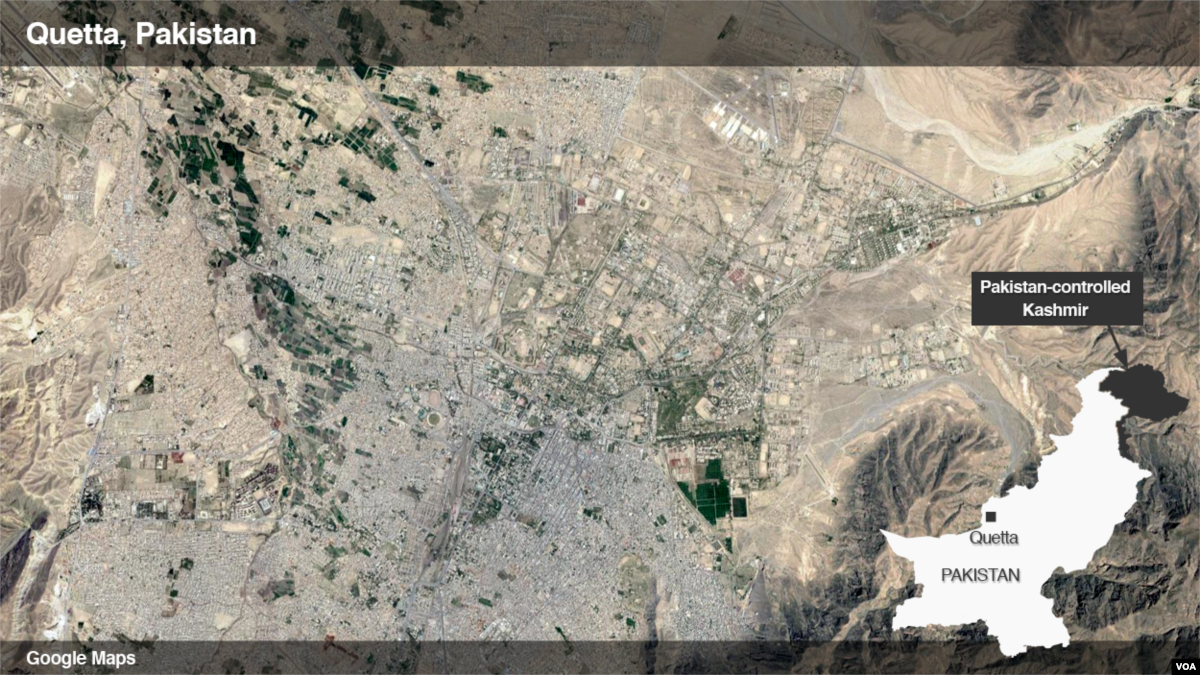
A suicide bomb attack near Pakistan’s southwestern city of Quetta has killed at least four paramilitary soldiers and wounded about seven others.
Officials are quoted as saying the bomber struck a camp of the Frontier Corps force Wednesday night, about 20 kilometers from the capital of Baluchistan province.
There were no immediate claims of responsibility.
Earlier in the day gunmen on motorbike ambushed a vehicle carrying a senior police officer in Quetta and sprayed it with bullets. The attack killed two security guards but the senior police officer survived.
The outlawed Pakistani Taliban claimed its members carried out the shooting.
Read More Deadly Suicide Attack Targets Quetta, Pakistan : http://ift.tt/2FDjAfSUN Sets Up 'Helpline' to Fight Sexual Harassment Among its Own
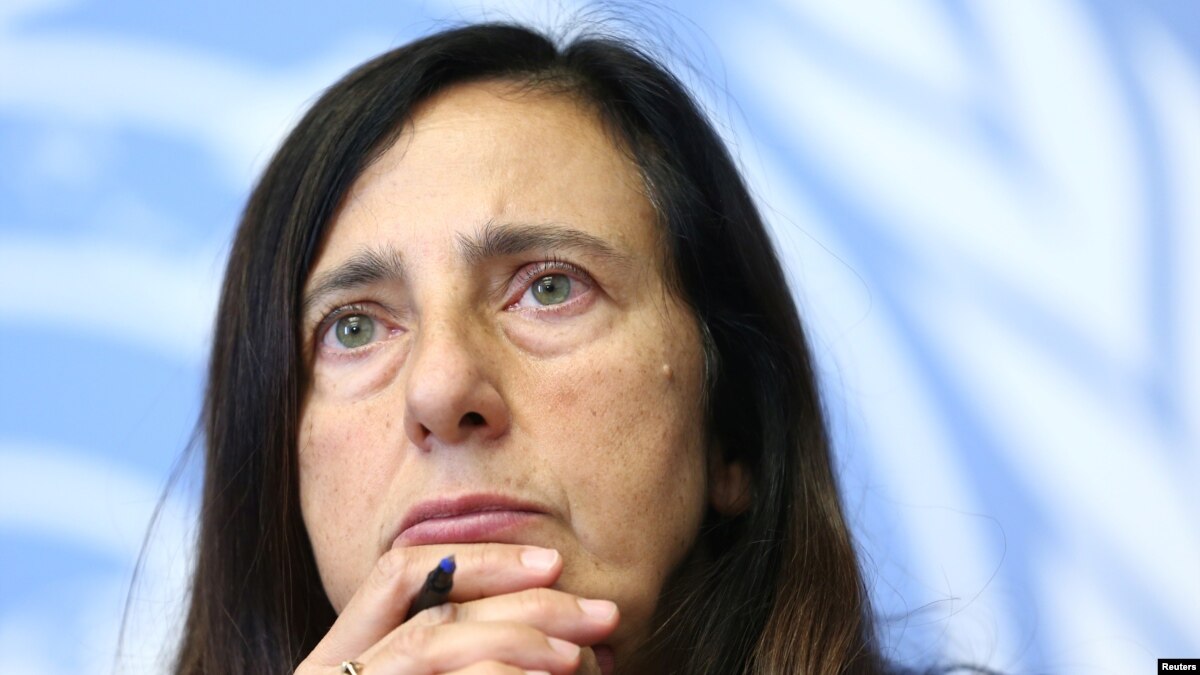
The United Nations has set up a 24-hour helpline to fight sexual harassment among its staff in the workplace as part of its Zero Tolerance policy regarding sexual exploitation and abuse.
The so-called “Speak Up” hotline is part of the U.N. Secretary-General’s wider initiative to fight sexual harassment and to support victims and witnesses. U.N. spokeswoman in Geneva, Alessandra Vellucci, explains U.N. staff can call the helpline 24 hours a day to speak confidentially to a trained, impartial person about problems of sexual abuse and to provide information.
She says the United Nations also is creating a specialized team to investigate cases of sexual harassment.
“Particular attention of this would be on increasing the number of female investigators," she said. "So, basically we are strengthening our tools to answer to this problem and put victims at the core of our action.”
While the United Nations can deal with internal problems of sexual harassment, Vellucci says the organization has no control over the behavior of U.N. peacekeepers. She says it is ultimately the responsibility of the member state of the soldiers accused of sexual misconduct to investigate and prosecute these crimes.
Officials from U.N. agencies condemned the recent reports that local workers and private charities were trading food and other assistance for sexual favors from Syrian women. U.N. refugee spokesman Andrej Mahecic calls the practice despicable and dehumanizing.
“But the mere suggestion that the U.N. can somehow control the situation in a war zone and the implied conclusion that we can somehow turn this on and off is rather simplistic," said Mahecic. "It is disconnected from the reality of what an aid operation looks like in an open and fierce conflict.”
The UNHCR and other U.N. aid agencies say their partners must adhere to a strict code of conduct, which covers sexual exploitation and abuse. They say any U.N. personnel found to be in breach of the code would be subject to disciplinary measures, including dismissal from service.
Read More UN Sets Up 'Helpline' to Fight Sexual Harassment Among its Own : http://ift.tt/2t7dIckUN Needs $278 Million to Fight Violence, Human Rights Abuse Worldwide
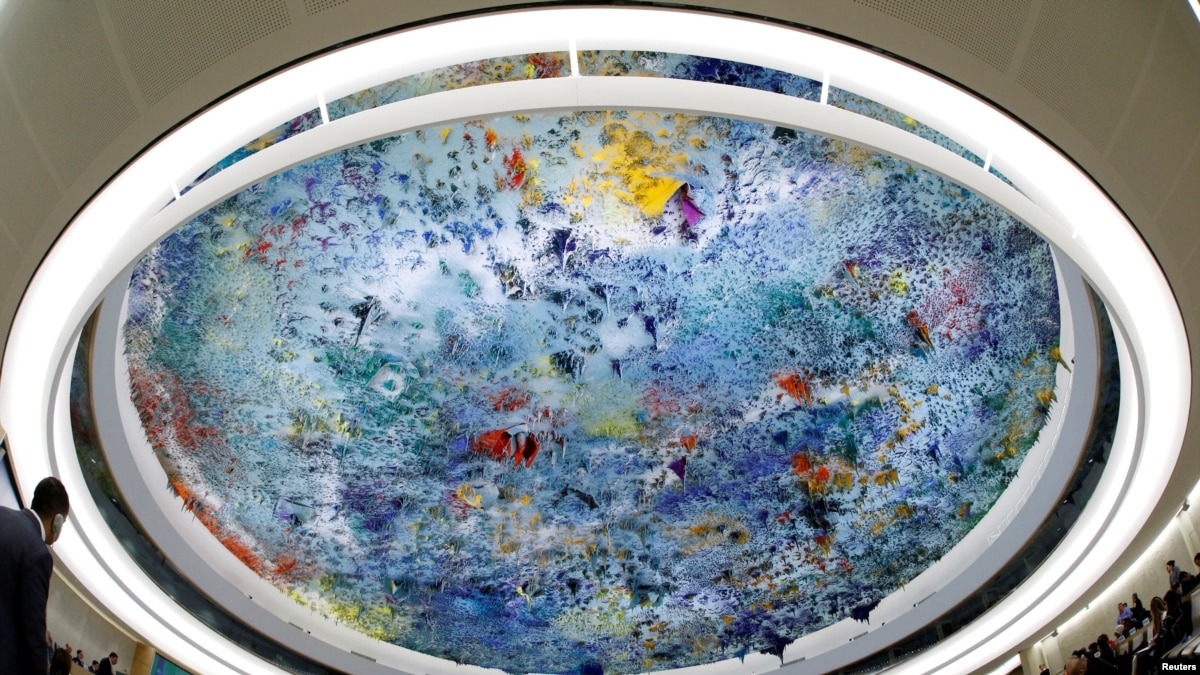
The U.N. Human Rights Office is appealing for $278.3 million in voluntary contributions to monitor human rights abuse worldwide and help prevent violence.
The U.N. Human Rights Office warns of a global pushback on human rights. It says this is all too visible in the slowing commitment by governments to uphold human rights values in places such as Syria, Yemen, Democratic Republic of Congo, Burundi and Myanmar.
U.N. Office of Human Rights spokeswoman Liz Throssell says this lack of commitment translates into lack of support from the international community to provide the funds necessary to carry out the agency’s important work.
She tells VOA the agency’s achievements often go unrecognized. For example, she says the help offered to victims of torture or other abuse usually occurs away from the blinding light of the media.
“Through the voluntary funds that we have, 45,000 victims of torture were helped to be rehabilitated," she said. "Our colleagues who work in our 60 plus offices or field presences around the world monitored 567 trials…There is lots of training that goes on around the world and maybe that is quite hard to sell as something sexy. But, it is really important and fundamental.”
Throssell says these training courses teach governments and civil society how to monitor human rights abuses, how to access justice, and how to set anti-discrimination standards.
Currently, only 63 countries are making voluntary contributions to the Human Rights Office. Throssell says this list of donor countries needs to expand. She says Norway and other Scandinavian countries are pledging to increase their contributions.
However, she says the word is still out on the United States, which traditionally has been the agency’s biggest donor. The U.S. Congress is in the process of discussing the issue and will make a decision toward the end of March.
Last year, the U.S. voluntary contribution was just over $20 million. This year, there are questions of how much Washington will contribute after the Trump administration in December announced a 285-million-dollar cut in overall U.S. contributions to the United Nations - a move the U.S. administration blames on ineffeciency and overspending at the United Nations.
Read More UN Needs $278 Million to Fight Violence, Human Rights Abuse Worldwide : http://ift.tt/2oAnbmSGhani Offers Unconditional Talks, Legitimacy to Afghan Taliban
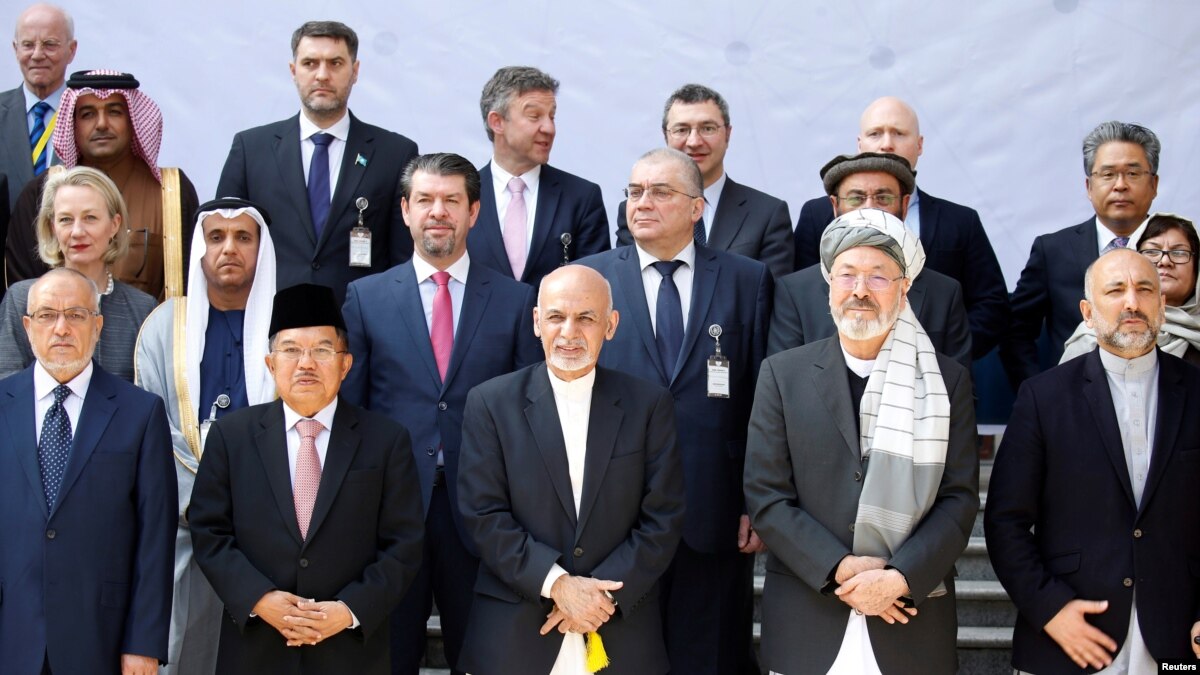
Afghanistan’s President Ashraf Ghani has offered unconditional peace talks to the Taliban, as well as the chance of recognizing them as a legitimate political party and withdrawing their names from international sanctions lists, if they agreed to join a peace process and give up violence.
Addressing the second Kabul Process conference Wednesday morning, Ghani said the Taliban’s demands of reviewing the constitution could also be entertained during the process. However, women’s rights would be protected.
“The peace process will be held in three stages of negotiations, approval, and implementation. In all stages women will be represented and consulted,” he said.
He also offered to help former fighters reintegrate into society and find jobs.
Taliban negotiating position
The offer comes at a time when Taliban leaders have indicated they would be willing to talk directly to the United States.
“The Political Office of the Islamic Emirate of Afghanistan [the Taliban] calls on American officials to talk directly to the Political Office of Islamic Emirate regarding a peaceful solution to the Afghan quandary,” the statement said, referring to the Qatar-based Taliban office.
However, the Taliban has so far refused to negotiate with the government in Kabul, calling them puppets of the Americans.
Presidential spokesman Haroon Chakhansuri said the proposed peace plan was prepared after months of consultations and input from all segments across the Afghan society. President Ghani said the entire country had a consensus on the proposal.
The Kabul Process, designed to map out a plan to end a war that is now in its 17th year, started last July.
US military involvement
The current round is taking place at a time when the U.S. military has stepped up airstrikes in support of Afghan ground security forces to break the battlefield stalemate and pressure the Taliban to come to the negotiating table.
The Taliban control, or have influence over, most of Afghanistan and have been able to inflict severe damage to the Afghan forces.
They also claimed responsibility for two bloody attacks in the heart of Kabul that killed hundreds of people.
Representatives from 25 countries as well as the United Nations and NATO are attending the Kabul Process.
Read More Ghani Offers Unconditional Talks, Legitimacy to Afghan Taliban : http://ift.tt/2FCE3RVLeast 15 People Killed in Papua New Guinea Earthquake

Emergency teams in Papua New Guinea are continuing to asses the damage from Monday's powerful earthquake that killed at least 15 people.
The 7.5 magnitude quake, which struck about 90 kilometers south of the town of Porgera, triggered landslides that knocked out power lines and damaged roads across the small Pacific island, cutting off access and communications to the interior highlands region, which is believed to have sustained the brunt of the damage.
Authorities have dispatched emergency teams to Hela province by helicopter to assess the damage and confirm reports of any casualties.
Officials in the Southern Highlands say many of the reported fatalities occurred in the provincial capital of Mendi, where several homes were flattened by the quake.
Australia has sent a C-130 military transport plane to Papua New Guinea to conduct aerial surveillance and provide logistical support. "Given the challenging terrain
and remoteness of the area, we expect that the extent of the damage will become clearer in coming days," Australian Foreign Minister Julie Bishop said in a written statement.
The earthquake forced ExxonMobil to shut down operations at its Hides liquefied natural gas plant located near Port Moresby, and has disrupted activity at other mining, oil and natural gas plants on the island.
Papua New Guinea is one of many nations that sits along the Pacific Ocean's "Ring of Fire," a line of seismic faults in the Pacific Ocean that is prone to earthquakes and volcanic activity.
Read More Least 15 People Killed in Papua New Guinea Earthquake : http://ift.tt/2F4gSigUS Criticizes Beijing's Term Limit Decision, but Carefully
[unable to retrieve full-text content]
The United States says China's proposal to abolish presidential term limits — a move that could make Xi Jinping president for life — is an internal matter for Beijing. VOA's Bill Gallo reports from Washington. Read More US Criticizes Beijing's Term Limit Decision, but Carefully : http://ift.tt/2CuCZkuTuesday, February 27, 2018
Papua New Guinea Quake Killed at Least 15, Governor Says

The governor of the central Papua New Guinea region hit by an earthquake this week says at least 15 people were killed and the toll may rise.
Southern Highlands Governor William Powi told The Associated Press that communication remains difficult and authorities are still trying to assess the extent of the damage caused by Monday's magnitude 7.5 earthquake.
Powi said Wednesday that four people in the capital, Mendi, were killed when their house collapsed on them, and that three were killed when their home was struck by a landslide. He said eight others were killed elsewhere. Dozens more were injured.
Three oil fields and a liquefied natural gas plant have shut. Powi said the quake caused "catastrophic havoc and destruction'' and people remain traumatized.
Read More Papua New Guinea Quake Killed at Least 15, Governor Says : http://ift.tt/2BV8vXI'We Cannot Keep Everyone Safe,' UN Warns as Rohingya Brace for Monsoon
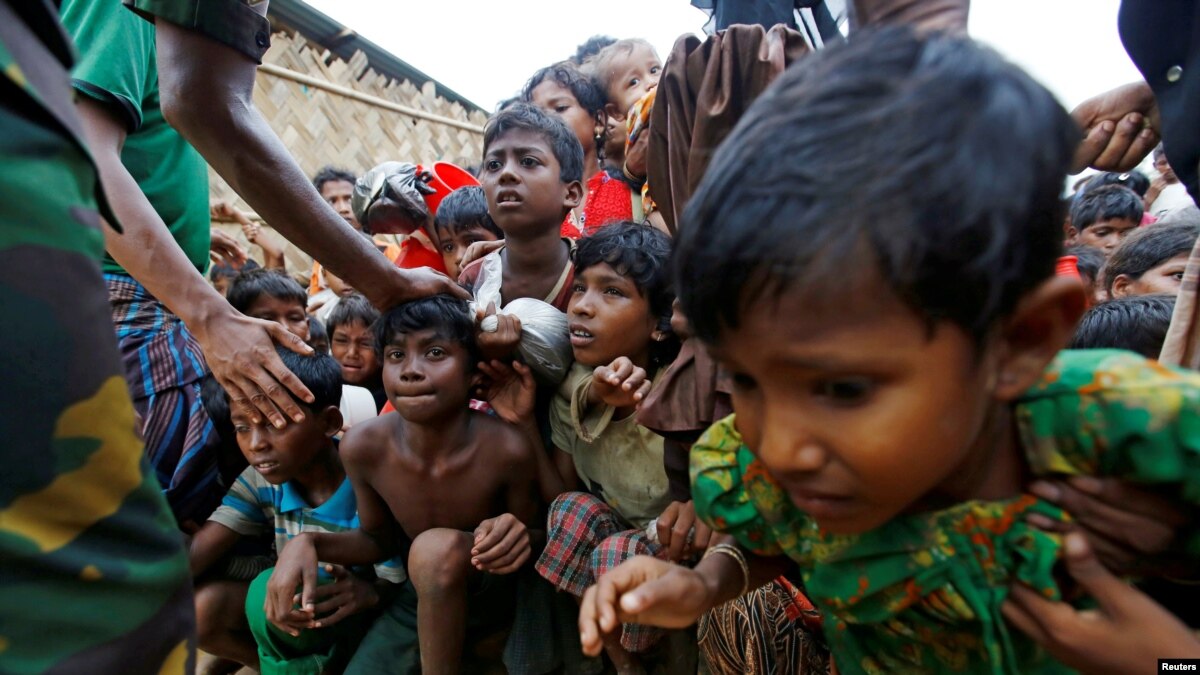
Aid agencies are reinforcing shelters, moving latrines and providing search and rescue training in the world's biggest refugee settlement in Bangladesh before monsoon rains strike in April, bringing deadly landslides and floods.
The United Nations migration agency warned that flash floods could wash away fragile shelters, housing about 100,000 refugees and local families, in congested camps in Cox's Bazar providing sanctuary for Rohingya who have fled neighboring Myanmar.
"The message on this has to be really clear: we cannot keep everyone safe," Fiona MacGregor, a spokeswoman for the International Organization for Migration (IOM), told the Thomson Reuters Foundation by phone on Tuesday from Cox's Bazar.
She warned of a "real possibility" that the approaching monsoon rains would lead to deaths in the camps, with thousands more refugees at risk from disease and aid shortages if flooding cuts off access to parts of the settlement.
Nearly 700,000 Rohingya have crossed into Bangladesh since violence flared in August and live on slopes that will quickly turn to mud when the cyclone season hits, IOM said.
Natural defenses such as trees and other vegetation have been stripped to make room for shelters in Cox's Bazar, which is home to more than 900,000 Rohingyas, it said.
Shelters constructed from tarpaulin and bamboo are being strengthened with additional coverings, ropes and sandbags to make them more resilient, said MacGregor.
"One of the big problems we have here are quite a lot of people have dug their shelters at 90-degree angles at the slopes so these are the ones at risk of coming crashing down," said MacGregor.
Aid agencies are providing machinery to keep roads clear to allow food and medicine to get through, setting up emergency medical centers and moving latrines to higher ground to prevent floods spreading disease, she said.
"The risk of things like diarrhea, dysentery, mosquito-borne diseases like dengue, malaria, and others are going to be a huge risk to the population," Tony Stewart of the World Health Organization in Cox's Bazar said in a statement.
Some 650 local people and refugees are also being trained in search and rescue by the IOM and Bangladesh's fire service and civil protection department.
Aid workers have criticized plans to move some Rohingya from the overcrowded camps to an uninhabited island about 30 km (21 miles) from the mainland, saying that it is vulnerable to cyclones.
Read More 'We Cannot Keep Everyone Safe,' UN Warns as Rohingya Brace for Monsoon : http://ift.tt/2oAxMy9Indian Officials Order End to Eviction of Tribal People from Tiger Reserves

An Indian government agency for indigenous people has asked the forest ministry to stop evicting tribal people from tiger reserves, highlighting the growing tensions over land use in the country.
The National Commission for Scheduled Tribes (NCST) asked the Ministry of Environment and Forests to ensure that its tiger conservation policy does not threaten the rights of indigenous people.
It also said that those who are asked to move from core tiger habitats must be adequately compensated and given land.
The environment ministry's National Tiger Conservation Authority (NTCA) issued a notice last year asking 17 Indian states to suspend the granting of rights to tribal and other forest dwellers in all critical tiger habitats.
Yet, NTCA officials denied that their policy hurts tribal forest dwellers.
"It is a wrong notion that tribals are being evicted," said Debabrata Swain, an additional director general at the NTCA, said Tuesday.
"It is entirely voluntary: We ask them if they would like to move from core tiger habitats and protected areas. If they agree to the rehabilitation terms, then they move," he told Reuters.
The NTCA is studying NCST's order, which it received Monday, and will respond in time, Swain said over the phone.
Forest Rights Act
India's Forest Rights Act gives indigenous people and forest dwellers the right to harvest and use forest resources to maintain their traditional livelihoods.
More than a fifth of India's 1.2 billion population was expected to benefit from the 2006 law covering vast areas of forest land roughly the size of Germany.
But implementation has been slow and conflicts between states and indigenous people have risen as more land is sought for industrial projects in one of the world's fastest-growing economies.
Wildlife tourism is also a growing money-spinner, and hundreds of tribal villagers have been evicted in sometimes violent clashes from land reserved for tigers, elephants and rhinoceros.
Last November, advocacy group Survival International asked tourists to boycott India's tiger reserves until the rights of indigenous people in them are upheld.
Officials must ensure their forest rights are settled, and offer more compensation, said Rahul Choudhary, co-founder of nonprofit Legal Initiative for Forest and Environment.
"These are people who have lived in the forest for generations. The government must offer better terms for their rehabilitation," he said.
Read More Indian Officials Order End to Eviction of Tribal People from Tiger Reserves : http://ift.tt/2F7K6A9US Adds Several Islamic State Affiliates to Terror List
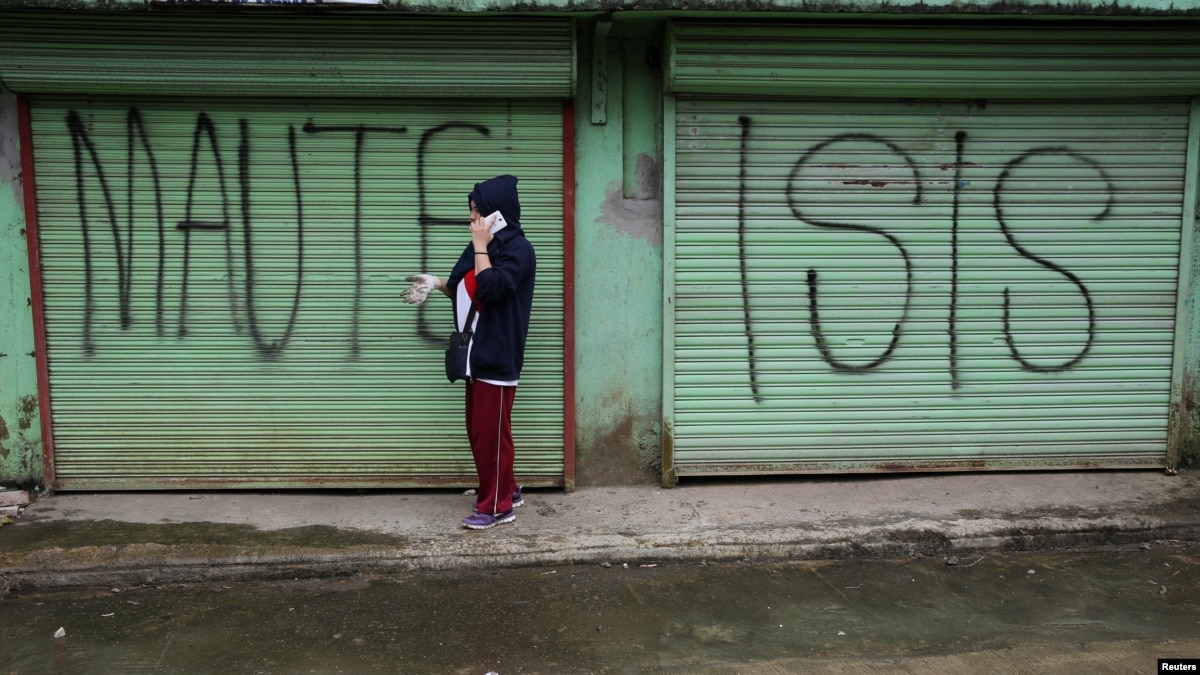
The U.S. State Department on Tuesday branded seven Islamic State groups from around the world and two of its leaders as terrorists in an effort to cut off any financial support they may have been getting from within the United States.
The top U.S. diplomatic agency blacklisted ISIS-West Africa, ISIS-Philippines and ISIS-Bangladesh, along with four other ISIS-affiliated groups — ISIS-Somalia, Jund al-Khilafah-Tunisia, ISIS-Egypt and the Maute Group. The State Department said it also has sanctioned two ISIS leaders, Mahad Moalim and Abu Musab al-Barnawi.
Nathan Sales, the State Department's counterterrorism coordinator, said in a statement that the designations "target key ISIS-affiliated groups and leaders outside its fallen caliphate in Iraq and Syria. Today’s actions are a critical step in degrading ISIS's global network and denying its affiliates the resources they need to plan and carry out terrorist attacks.”
The law under which the sanctions were imposed blocks the IS groups from conducting any business transactions linked to any properties they may have in the U.S. and prohibits Americans from doing business with them.
The State Department said the sanctions send a message globally that "these groups and individuals have committed or pose a significant risk of committing acts of terrorism. Terrorist designations expose and isolate entities and individuals, and deny them access to the U.S. financial system. Moreover, designations can assist the law enforcement activities of U.S. agencies and other governments."
It said the terrorist designations are part of the U.S. plan to defeat IS insurgents.
"This whole-of-government effort is destroying ISIS in its safe havens, denying its ability to recruit foreign terrorist fighters, stifling its financial resources, countering the false propaganda it disseminates over the internet and social media, and helping to stabilize liberated areas in Iraq and Syria so the displaced can return to their homes and begin to rebuild their lives," the State Department said.
Read More US Adds Several Islamic State Affiliates to Terror List : http://ift.tt/2F0esBBAfghan Conference to Renew Call for Unconditional Taliban Talks
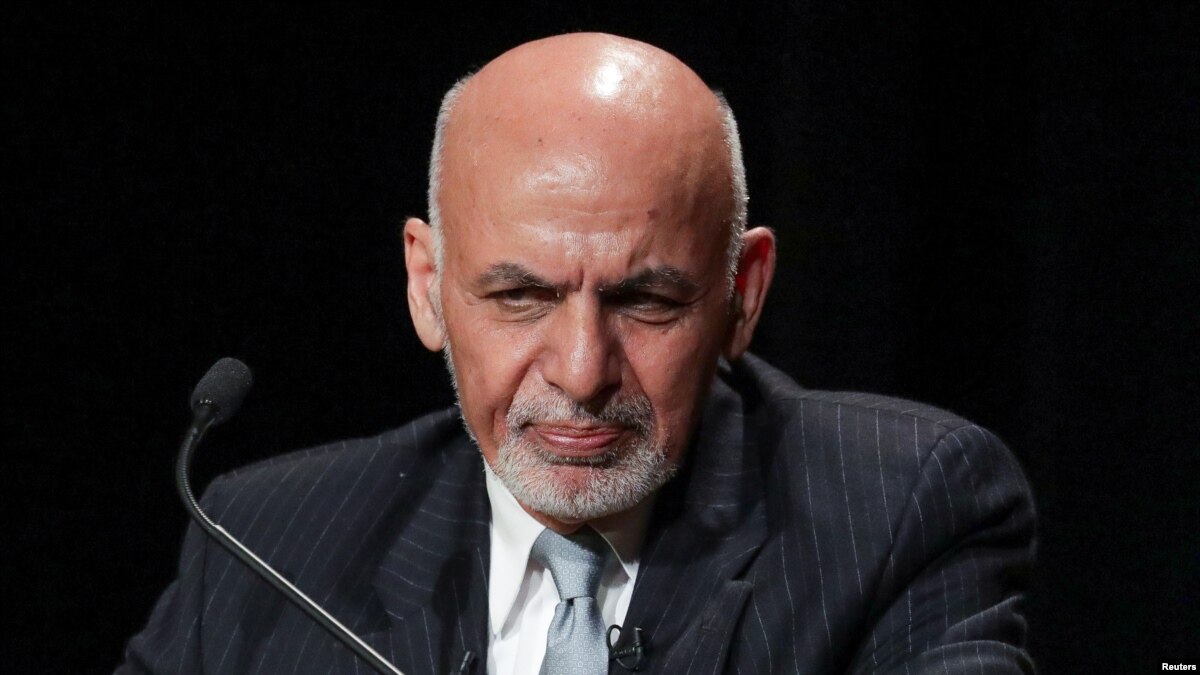
Afghan President Ashraf Ghani will host an international conference Wednesday where, officials say, he will renew his call for “unconditional” peace talks with the Taliban and invite the insurgent group to open an office in Kabul for that purpose.
A presidential spokesman told reporters Tuesday the offer will be made under a proposed “comprehensive plan for peace” strategy the president will unveil at the so-called “Kabul Process” meeting, where representatives from over 20 countries and international organizations will be in attendance.
“The Afghan government has no preconditions for opening talks and hopes the Taliban will accept the offer to help bring a stable and durable peace to Afghanistan,” said Haroon Chakhansuri. He said the government is ready to take steps to encourage such a dialogue and will ensure security for Taliban envoys if they agree to come to Kabul.
“The government would prefer to hold these negotiations in Kabul, or anywhere in Afghanistan. But if the Taliban want to hold talks outside Afghanistan, the government is ready, provided they are held in an Islamic country not involved in the conflict, or at an office of the United Nations,” explained Chakhansuri.
The Taliban has been refusing to hold talks with the Afghan government, calling officials “American puppets.”
In a statement issued ahead of the second "Kabul Process" conference, the Taliban reiterated Monday it will engage in direct talks only with the United States, blaming the presence of foreign forces in Afghanistan for a continuation of the war, now in its 17th year.
“The Political Office of the Islamic Emirate of Afghanistan [the Taliban] calls on American officials to talk directly to the Political Office of Islamic Emirate regarding a peaceful solution to the Afghan quandary,” the statement said, referring to the Qatar-based Taliban office.
The insurgent group issued the statement in response to recent remarks by Alice Wells, a senior U.S. State Department diplomat, who said the “door is open” for talks with the Taliban.
Wells told VOA earlier this week that the "Kabul Process” meeting would aim to make clear that there was the potential for dialogue.
"I'm confident that the conference is going to push forward regional efforts to enforce what has been our most important message to the Taliban — that the door is open, there is a path to peace and stability," she said.
"It would help in finding a solution if America accepts the legitimate demands of the Afghan people and forwards its own concerns and requests for discussion to the Islamic Emirate through a peaceful channel," noted the Taliban statement.
The U.S. has turned down previous Taliban offers of direct talks and urged the group to engage in a peace and reconciliation process with the “legitimate” Afghan government.
Chakhansuri also reminded the Taliban of Washington’s peace dialogue refusal and called on insurgents to seek a resolution through an intra-Afghan reconciliation process.
The presidential spokesman insisted the proposed peace plan framework to be unveiled Wednesday has been prepared after months of consultations and input from all segments across the Afghan society, calling it a national consensus document.
Without sharing further details, Chakhansuri said that recommendations on how to tackle regional terrorism and further a peaceful relationship with neighboring Pakistan are also included in the proposed plan.
The opening meeting of the so-called Kabul Process was held in July last year. The latest round is taking place at a time when the U.S. military has stepped up airstrikes in support of Afghan ground security forces to break the battlefield stalemate and pressure the Taliban to come to the negotiating table.
But the insurgents say they have not lost “an inch” of the Afghan territory under their control in the face of increased U.S. and Afghan military operations, and hostilities are expected to intensify in the coming summer fighting season. The Taliban controls or contests 44 percent of Afghan territory.
U.S. and Afghan officials maintain that insurgent sanctuaries in neighboring Pakistan have enabled the Taliban to sustain and expand insurgent activities, charges Islamabad denies. The allegations are at the center of Pakistan’s tensions with Afghanistan and Washington.
Read More Afghan Conference to Renew Call for Unconditional Taliban Talks : http://ift.tt/2FA9Jr5Sri Lanka Shops, Mosque Damaged in Buddhist-Muslim Clash
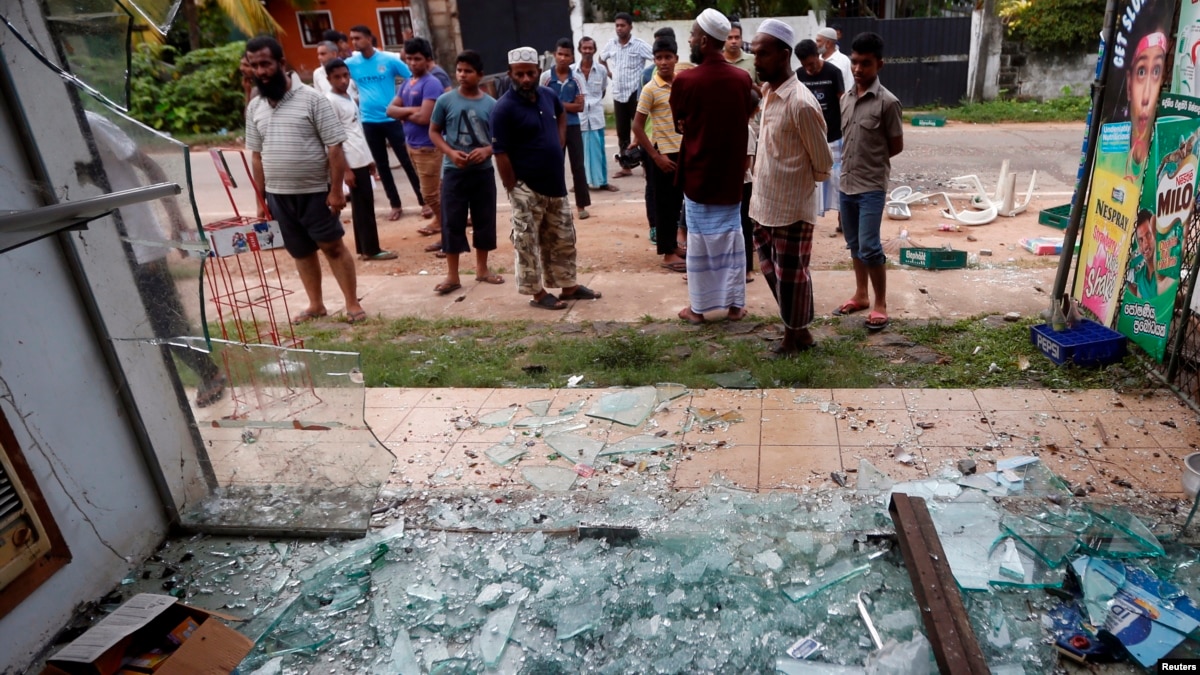
At least five people were wounded and several shops and a mosque damaged in a clash between majority Sinhalese Buddhists and minority Muslims in eastern Sri Lanka, police said on Tuesday.
Renewed tension has been growing between the two communities since last year, with some hardline Buddhist groups accusing Muslims of forcing people to convert to Islam and vandalizing Buddhist archaeological sites.
Police had been deployed in the eastern town of Ampara to control the unrest after a Sinhalese mob attacked a mosque, four shops and several vehicles late on Monday, spokesman Ruwan Gunasekara said.
Gunasekara said no arrests had been made so far.
The Muslim Council of Sri Lanka (MCSL), an umbrella body that includes most Muslim organizations in the country, condemned the attack and requested the government to conduct an impartial inquiry into it and arrest the perpetrators.
"The government has the sole responsibility to ensure the safety and security of all its citizens irrespective of religious belief, caste or ethnicity," the Council said in a statement.
"This form of mob violence is continuing to grow and Muslim business establishments are targeted."
Last year, diplomats condemned violence against Muslims and urged the government to uphold minority rights and freedom of religion after more than 20 attacks on Muslims, including arson at Muslim-owned businesses and mosques.
President Maithripala Sirisena and Prime Minister Ranil Wickremasinghe have promised to protect minorities, but attacks against Muslims have continued.
Muslims comprise about nine percent of Sri Lanka's population of 21 million. Buddhists make up about 70 percent and Hindus about 13 percent.
The government ended a full-blown 26-year civil war by defeating mostly Hindu Tamil Tiger rebels in 2009, with claims of atrocities on both sides.
The United Nations criticized Sri Lanka last year for slow progress in addressing war crimes and human rights abuses. The United Nations and rights activists have accused the Sri Lankan military of killing thousands of civilians, mostly Tamils, in the last weeks of the war.
Read More Sri Lanka Shops, Mosque Damaged in Buddhist-Muslim Clash : http://ift.tt/2CoAAroKazakh Leader Bans Cabinet From Speaking Russian
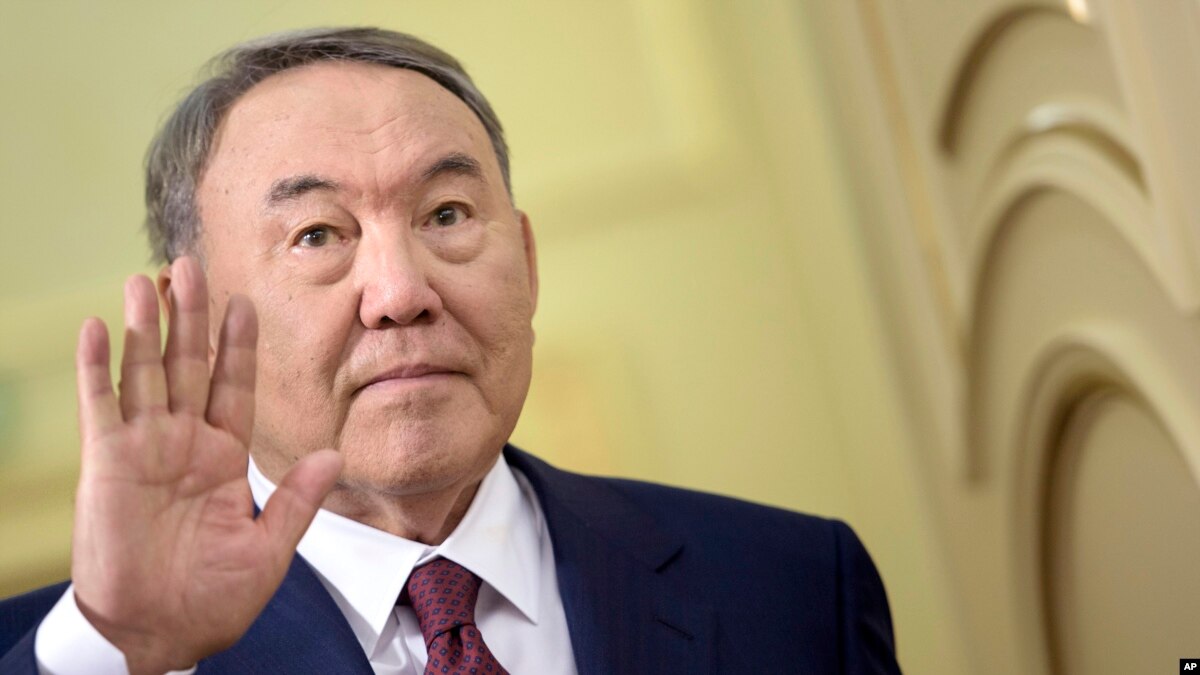
Kazakhstan further loosened cultural ties with its former political masters in Moscow on Tuesday when a ban on speaking Russian in cabinet meetings took effect - despite many ministers favoring that language over their native Kazakh.
Veteran President Nursultan Nazarbayev, who wields sweeping powers while paying close attention to public opinion, ordered the switch the previous day.
The only Soviet-era leader still in power, the 77-year-old has run the Central Asian country since 1989. He is fluent in both languages and switches between them in his speeches.
But many Kazakhs, including some senior officials, are not, and prefer Russian, and cabinet meeting have generally been bilingual too.
But in Tuesday's meeting, broadcast live on state television, only one participant in the chamber, Education Minister Yerlan Sagadiyev, was permitted to speak Russian. Exceptions were also made for provincial officials who joined via videolink.
After independence, many former Soviet republics rushed through the process of severing links with Moscow, known as de-Russification.
Kazakhstan, which became self-governing in 1991, took things more slowly, in part because ethnic Kazakhs at that time made up less than half of its population.
Four years later, Nazarbayev made Russian the country's second official language.
But in a census compiled in 2009, only 62 percent of the population said they were fluent in spoken and written Kazakh, compared with 85 percent in Russian. The ethnic balance has since shifted, with Kazakhs now making up 69 percent of the oil-rich nation's population of 18 million, while ethnic Russians account for just a fifth.
The Russian language has continued to dominate, however, generating public pressure for the government to promote Kazakh more actively.
Kazakh, a Turkic language, has very little in common with Russian save for some borrowed words.
Nazarbayev last year announced a switch to a new, Latin-based Kazakh alphabet that will gradually replace the current Cyrillic script adapted from Russian.
The move was not without hiccups. This month he amended his own decree after many Kazakhs criticized the use of apostrophes combined with Latin letters to denote some Kazakh letters. The new script uses French-style accents instead.
Nazarbayev maintains warm ties with the Kremlin and was credited with helping to mend fences between Moscow and Ankara in 2016 after they fell out over Turkey's downing of a Russian warplane.
But there is no sign of compromise in his crusade against his officials speaking Russian.
He has also ordered all parliamentary hearings to be held in Kazakh, saying those who are not fluent must be provided with simultaneous translations.
And his ministers will get no further leeway either. "Next time I will report [from the cabinet] 100 percent in Kazakh," privately owned news website Informburo.kz quoted Sagadiyev as saying.
Read More Kazakh Leader Bans Cabinet From Speaking Russian : http://ift.tt/2HO9GsuYogyakarta Region Upholds Decision to Bar Chinese Indonesians from Owning Land

A decision by the Special Region of Yogyakarta, a major cultural center of Indonesia, to uphold its statute to bar ethnic Chinese Indonesians from owning land has reignited claims the practice is discriminatory and unconstitutional.
The region, in the heart of Java island, has asserted since 1975 that only "native-born" Indonesians, or pribumi, can own land, although it contradicts Indonesia's earlier Agraria Laws that say any "Indonesians" can own land in Indonesia.
The term pribumi is contentious, denoting the vague concept of "original Indonesians" to the exclusion of ethnic Chinese, even though many have lived in Indonesia for generations.
The decision settled a court case brought by a Chinese Indonesian named Handoko against the Yogyakarta Regional Government, claiming the policy was discriminatory. He was ordered to pay a fine of about $30.
A regional land official, Suyitno, told Tirto last year that the land ownership policy would even out wealth and land distribution that he claims is disproportionately skewed in favor of ethnic Chinese.
The claim is a popular one in Indonesia, where many of its richest citizens are ethnic Chinese, but also where Chinese-Indonesians have been periodically subjected to brutal violence, including in the military-led mass killings that ushered in the Suharto dictatorship in 1965 and again in 1998, when the dictatorship finally fell.
Activists are decrying the decision to continue barring Chinese Indonesians from owning land.
"The Yogyakarta policy that was established in 1975 is not in line with the Indonesian Constitution and several federal laws," said Sandra Moniaga, of the national Human Rights Commission. She said the Commission cannot intervene in the regional statute in question, but suggested that "the local government and Regional People's Representative Assembly should revise the verdict… If they do not, the Interior Ministry could do an executive review, or a judicial review may be filed to the Supreme Court."
Chinese Indonesian wealth
Chinese Indonesians have historically enjoyed a degree of business success in Indonesia, and many of the nation's richest citizens are ethnic Chinese diaspora (known locally as "Tionghoa"). But a major reason for this is that Tionghoa were long barred from government or civic professions, leaving them few options beyond private enterprise.
The last two years has seen a renaissance of anti-Chinese sentiment.
In late 2016, a series of mass Islamist protests against Basuki "Ahok" Tjajaja Purnama, a Chinese Christian governor who rose to unusual political prominence as the governor of Jakarta, was a turning point that consolidated long-simmering resentment of Chinese Indonesian wealth with Islamic populism, according to upcoming research from Australian academic Marcus Mietzner.
For instance, the leader of Indonesia's National Ulama (cleric) Council, the nation's top Muslim body, declaimed the "trickle-down theory" for failing Indonesians. Bachtiar Nasir, another prominent Islamist who helped organize the anti-Ahok rallies in 2016, explicitly said last year that ethnic Chinese wealth was their next target, and advocated for affirmative action for pribumi Indonesians.
That populist sentiment is reflected in the logic of Yogyakarta wanting to "redistribute" wealth and property. It's worth noting that, despite numerous high-profile wealthy Chinese-Indonesians, the majority today are middle-class.
Before Handoko's lawsuit, other Chinese-Indonesians in Yogyakarta have protested the discriminatory statute. Willie Sebastian, an activist with the Nation's Child Against Discrimination Movement, wrote a letter to the president in 2015 accusing Yogyakarta's sultan (who is also its governor) of discrimination. But it, too, had no effect.
"The court decision is yet another concerning episode that exposes the vulnerability of Chinese Indonesians in a country where anti-Sinocism is deeply rooted," said DiegoFossati, a research fellow at the Griffith Asia Institute."Such instances of intolerance are often initiated by social/political groups with an extremist agenda, such as radical Islamists, but sometimes, like in the Yogya case, they may involve government officials."
Special administrative region
Yogyakarta, a sultanate, is a special administrative region, which is a big reason why it can uphold idiosyncratic local statutes.
In 1975, the Deputy Governor of Yogyakarta, Paku Alam XIII, authorized a law that says regional officials may not issue land ownership certificates to non-native citizens.
"The 1975 deputy governor's letter contradicts the constitutional rights of Indonesian citizens (the right to land ownership without discrimination on racial, religious, and ethnic lines), and also clearly violates the [federal] Basic Agrarian Law of 1950, which makes no distinction between pribumi and non-pribumi citizens," said Didin of the Legal Aid Institute of Yogyakarta.
The lead judge in the case, P. Cokro Hendro Mukti,argued that since the 1975 law was an "instruction" issued with executive privilege, it could not be challenged for conflicting with federal anti-discrimination laws.
"An instruction is a regulatory policy and not a statutory law, and meaning it cannot be tested using higher laws and regulations because there is no legislation that was used as the basis for making it," Mukti told reporters last week.
Handoko said that he is undeterred by the setback and plans to appeal his case.
"My ID card is the same as the Sultan's," he said, explaining that it doesn't distinguish between "native" Indonesian and ethnic Chinese. "I will keep fighting, because this [the statute and the prohibition of Chinese citizens from owning land] is not right."
Read More Yogyakarta Region Upholds Decision to Bar Chinese Indonesians from Owning Land : http://ift.tt/2F8PAuADubai Police Close Investigation Into Death of Bollywood Icon
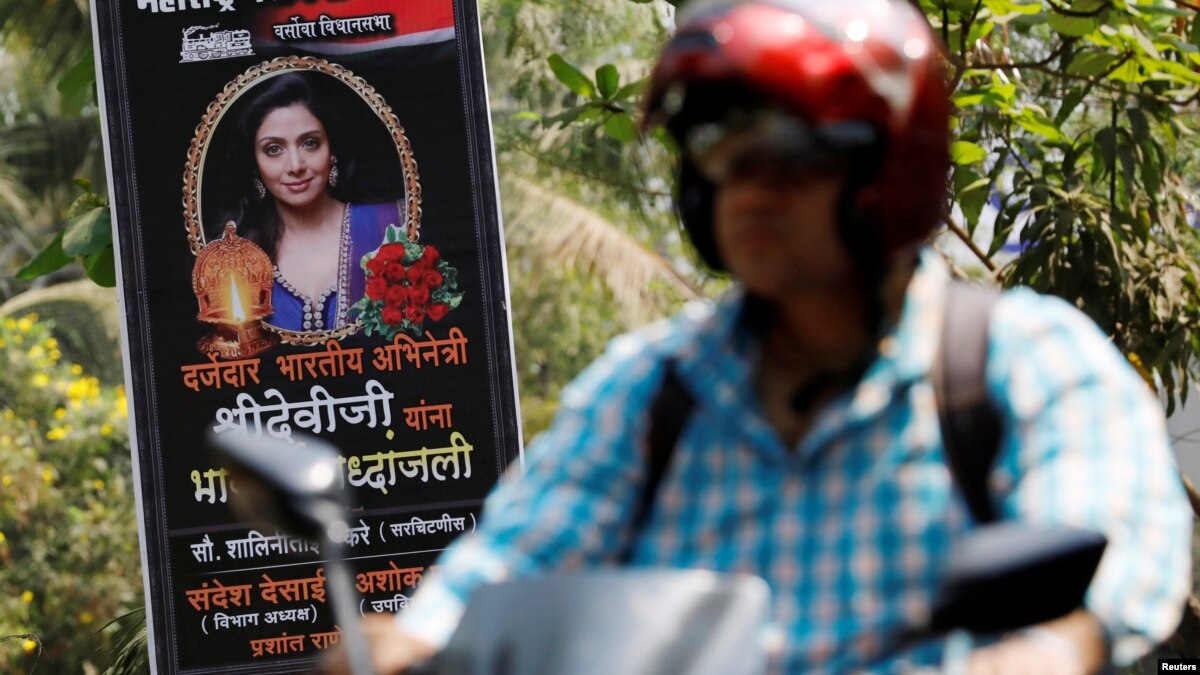
Dubai police say they have closed their investigation into the death of famed Bollywood actress Sridevi Kapoor, confirming she died from an "accidental drowning."
Authorities said the death of the 54-year old actress was due to drowning in her hotel apartment’s bathtub following a loss of consciousness. Dubai officials said they approved the release of her body to her family.
Sridevi died Saturday night in Dubai while attending her nephew's wedding. Initial reports suggested she suffered a heart attack.
Best known for her roles in Indian Hindi romantic drama films, including Chandni, Lamhe, Mr. India, and Nagina, Sridevi began her acting career at a young age and starred in over 300 films.
Many in the Bollywood film industry expressed their shock and sadness following the news of her death.
"I have no words. Condolences to everyone who loved #Sridevi . A dark day . RIP," actress Priyanka Chopra wrote on Twitter.
"Ma'am, we will always remember you with love and respect," actor Aamir Khan tweeted.
Read More Dubai Police Close Investigation Into Death of Bollywood Icon : http://ift.tt/2EWowiKThai PM Now Says Election to Be Held No Later Than February 2019
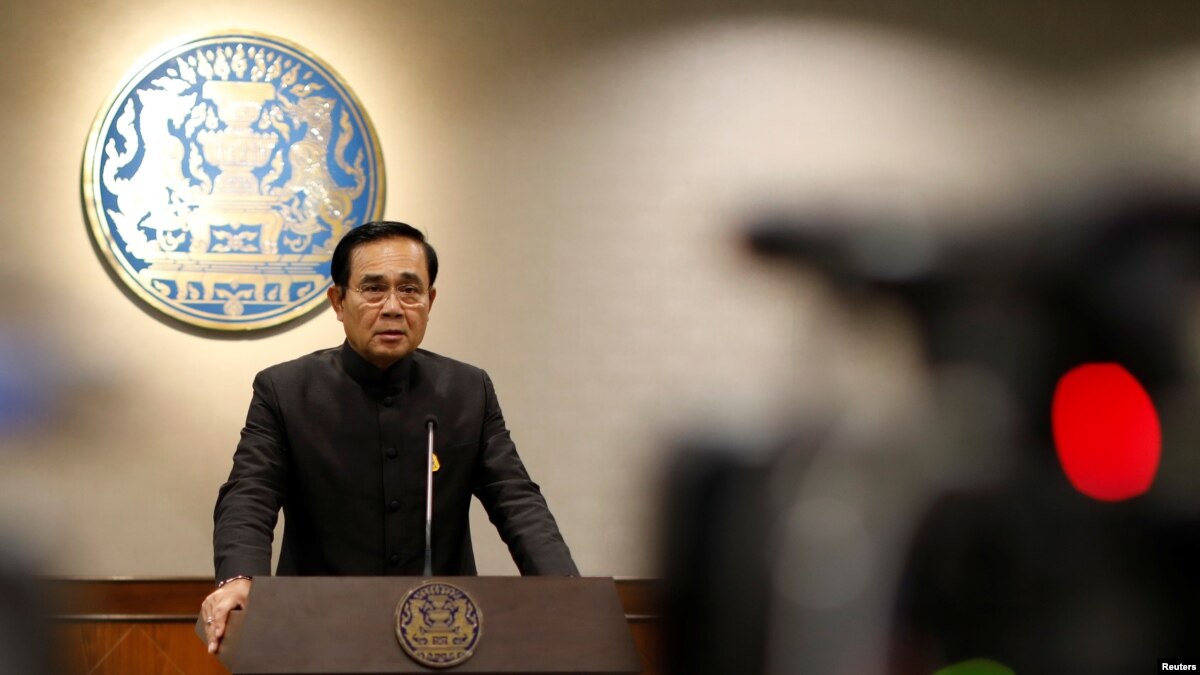
Thai Prime Minister Prayuth Chan-ocha on Tuesday said a general election he had promised to hold in November would take place "no later" than February 2019, the latest delay to anger critics of the government.
The junta has promised and postponed elections several times since its 2014 coup overthrew a civilian government. The latest date was set for November but last month the military-appointed legislature changed the election law, pointing to further delay.
"Now I will answer clearly, an election will take place no later than February 2019," Prayuth, who is under growing pressure both at home and abroad to return to civilian government, told reporters in Bangkok, the capital.
Hundreds of people have flocked to Bangkok in recent weeks to urge the military government not to delay the vote, some of the biggest anti-junta demonstrations seen since 2014.
The latest election delay has shattered people's confidence in Prayuth's timeframe, said Phongthep Thepkanjana, a former deputy prime minister and a senior member of the opposition Pheu Thai Party that represents the Shinawatra family.
Thailand is divided broadly between those backing former prime minister Thaksin Shinawatra and his sister, Yingluck, whose government was removed in the coup, and the elite in Bangkok.
"I think many Thais, like me, no longer give a lot of weight to what the prime minister has to say right now," Phongthep said.
"The delay is a symptom of those in power who know that once an election takes place they will no longer have power. That is why they want to delay election."
The new pledge lacked credibility, said Thitinan Pongsudhirak, a political science professor at Bangkok's Chulalongkorn University.
"Because Prayuth has backtracked on election dates at least four times, this new pledge is simply not credible," he told Reuters.
However, the announcement gave investors clarity about Thailand's political future, said Ongart Klampaiboon, deputy leader of the rival Democrat Party.
"This will create more confidence for people in the country, as well as foreign investors and businesspeople who need to assess the political situation in their plans," he told Reuters.
In January, parliament voted to extend by 90 days the start date for a new election law. The bill lays out rules for lower house elections and is one of four that need to take effect before the vote.
Critics say Prayuth wants to delay the vote to ensure the military retains a key role in political life.
He has hinted he would like to stay in power after any election, which is possible under the junta-backed constitution that allows for an "outsider" to be appointed prime minister.
"If Prayuth wants to step down smoothly, it has to be November this year and no other date," said Rangsiman Rome, a leader of the Democracy Restoration Group (DRG) that organized a weekend protest.
Prayuth led the May 2014 coup following months of street protests aimed at ousting Yingluck's government. Both Thaksin and Yingluck live in self-imposed exile after fleeing prison sentences for separate corruption cases.
Read More Thai PM Now Says Election to Be Held No Later Than February 2019 : http://ift.tt/2FE4aZ3Indonesian Christians Whipped Over Sharia-banned Child's Play
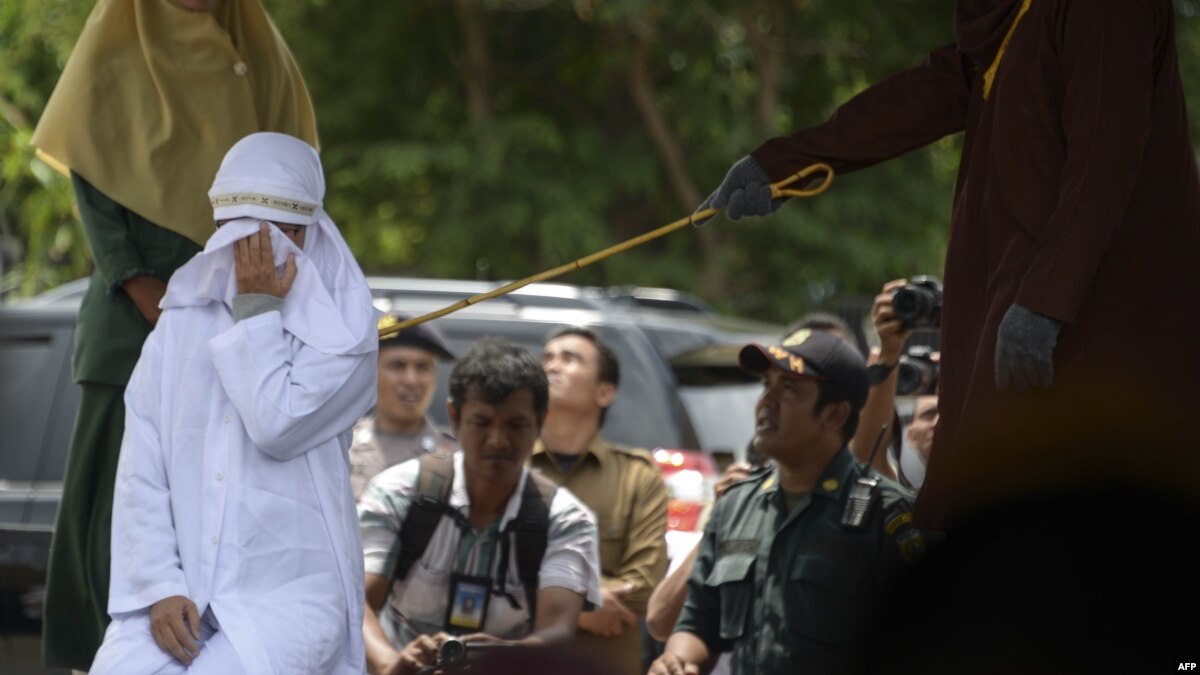
Two Indonesian Christians were publicly flogged in conservative Aceh province Tuesday for playing a children's entertainment game seen as violating Islamic law, as hundreds of onlookers ridiculed them and took pictures.
The pair were among five people -- including a couple whipped two dozen times each for showing affection in public -- who were lashed with a rattan stick.
Aceh is the only province in the world's most populous Muslim-majority country that imposes sharia law and people can be flogged for a range of offences -- from gambling, to drinking alcohol to having gay sex or relations outside of marriage.
On Tuesday, Dahlan Silitonga, 61, and Tjia Nyuk Hwa, 45, were flogged six and seven times respectively after being arrested for playing a long-standing game at a children's entertainment complex that lets users exchange coins for prizes or vouchers, including cash.
The pair were accused of gambling while another man, Ridwan MR got 19 lashes for being involved in the game.
"This is to create a deterrent effect, in order for people not to repeat violations of Islamic sharia law," Banda Aceh's mayor Aminullah Usman said.
"We purposely do it in front of the public... so it won't happen again."
About 300 spectators, including some two dozen tourists from neighboring Malaysia, jeered the gambling-accused trio as they were whipped on a makeshift stage outside a mosque.
"You are old, show remorse," the crowd screamed.
Non-Muslim Tjia Nyuk Hwa tried to hide her face in a specially provided white cloak with head-covering hijab.
The two Christians are among just a handful of non-Muslims to be punished under Aceh's strict religious law since it was adopted in 2001 as part of a deal with the central government to end a long-running insurgency.
In January, an Indonesian Christian was flogged for selling alcohol in the province at the tip of Sumatra island, which made headlines recently after local police publicly humiliated a group of transgender women.
About 98 percent of Aceh's five million residents are Muslims subject to religious law.
Non-Muslims who have committed an offense that violates both national and religious laws can choose to be prosecuted under either system.
Christians and other non-Muslims sometimes choose a flogging to avoid a lengthy court process and jail term.
Read More Indonesian Christians Whipped Over Sharia-banned Child's Play : http://ift.tt/2CKHS4BSouth Korean Prosecutors Demand 30 Years for Ex-president Park
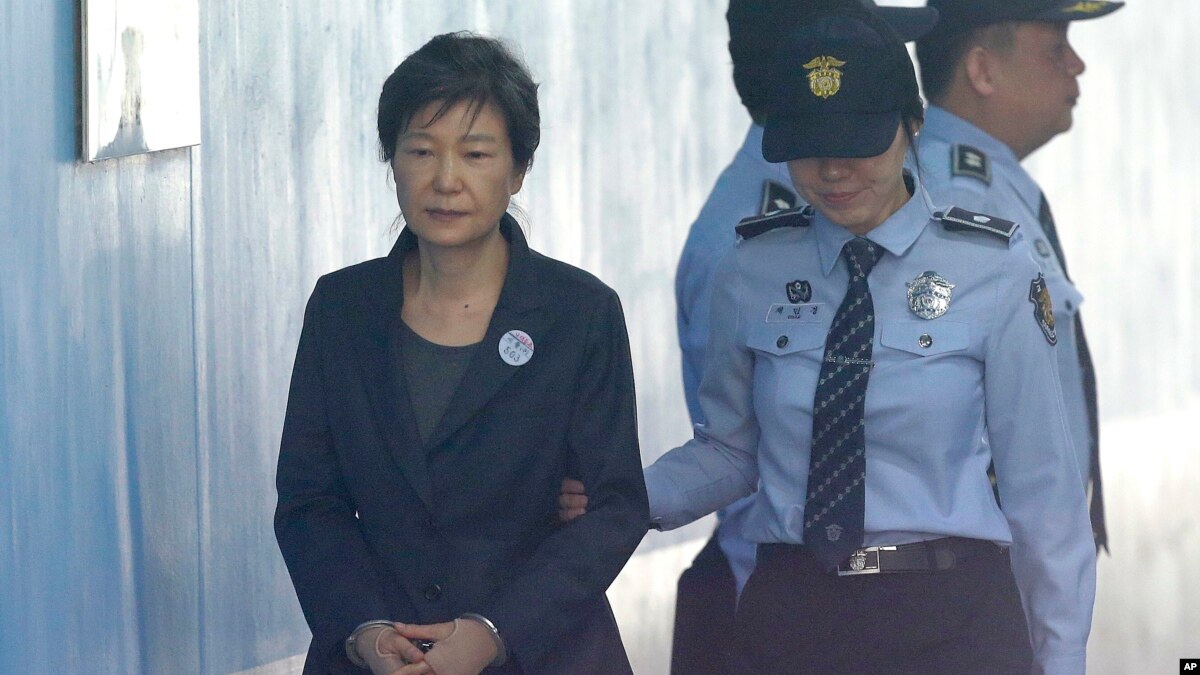
Prosecutors on Tuesday demanded a 30-year prison term for former South Korean President Park Geun-hye for alleged bribery, abuse of power and other crimes in a landmark corruption case that marked a stunning fall from grace for the country's first female leader and conservative icon.
Park did not attend the court hearing where prosecutors also demanded a fine of 118.5 billion won ($110 million) and said she has shown no remorse for "disrupting constitutional order and damaging the public's trust in state power." The court was expected later Tuesday to set the date when it will announce the verdict and sentence if it finds her guilty.
"The defendant thoroughly destroyed the dreams and hope of people — this incident left a permanent scar in South Korean history and yet it also provided the opportunity for people to restore democracy and rule of law with their own hands," prosecutor Han Dong-hoon told the court, according to a pool report. "A stern punishment by the court is needed to send a message to the public and politicians that the tragic history should not be repeated."
If the court finds her guilty, Park would be the third South Korean president convicted of crimes. The others were former military generals involved in a 1979 coup and a 1980 civilian massacre.
Park has been boycotting the hearings in Seoul Central District Court since October in protest of its decision to extend her detention by another six months. Park's lawyers then resigned en masse and she has reportedly been refusing to meet with state-appointed lawyers who have since been defending her in court.
On Tuesday, Park's lawyers argued that the prosecutors have been unable to fully prove their charges against Park. They said it's unclear whether the companies were pressured into providing money to foundations controlled by Park's close confidante.
"The president did not threaten the companies and the companies weren't victims who paid money because they were scared," said lawyer Park Seung-gil, saying businesses will always try to maintain a friendly relationship with the government even when they aren't chasing specific business favors. "To put it in a bad way, it could be described as a close relationship between government and business. But while it would be simple for everyone if we could define what happened as bribery or extortion or both, the whole body of truth isn't clear-cut."
If she is convicted, an appeal from her defense team is expected as Park has continuously denied wrongdoing.
The court could force Park to attend her sentencing hearing by taking steps such as issuing an arrest warrant or it could set a second sentencing date. Some legal experts say the court could issue a verdict without her presence in court.
Following massive protests by millions and impeachment by lawmakers in December 2016, Park was formally removed from office and arrested in March last year amid allegations that she colluded with a longtime friend to take tens of millions of dollars from companies in bribes and through extortion. The court sentenced Park's friend, Choi Soon-sil, to 20 years in prison earlier this month, and more severe punishment was expected for Park.
Current South Korean President Moon Jae-in, who took office last May in a by-election, has said he won't use his powers to pardon Park.
Former Cabinet ministers, senior presidential aides and business executives have been charged in the scandal. Lotte Group Chairman Shin Dong-bin was sentenced to 2 { years in prison for offering more than $6 million in payments to foundations controlled by Choi in exchange for business favors. Samsung scion Lee Jae-yong was initially sentenced to five years in prison for offering bribes, but some of his convictions were overturned on appeal and the sentence was suspended.
In jail, Park reportedly has seen only a few visitors and her lawyers. Before she began boycotting the hearings, Park sat mostly expressionless in court, sometimes burying her face into the desk apparently out of fatigue.
It's hard to imagine a more absolute fall for Park, who won the 2012 presidential election by more than a million votes. She enjoyed overwhelming support from conservatives who remember her father, staunch anti-communist dictator Park Chung-hee, as a hero whose aggressive industrial policies lifted the nation from the devastation of the 1950-53 Korean War and rescued millions from poverty. Critics see the elder Park as a brutal dictator who tortured and executed dissidents.
As president, the younger Park was criticized for what opponents saw as her refusal to tolerate dissent and her alleged mishandling of a 2014 ferry disaster that killed more than 300 people, mostly schoolchildren. The scandal involving Choi further destroyed Park's carefully crafted image as a selfless daughter of the nation and inspired an angry public to push for her ouster. After she was removed from office, voters elected the first liberal national government in a decade.
To stubborn supporters, Park remains the wronged "mother of the nation." A declining number of Park supporters — still in the hundreds and mostly in their 50s, 60s and 70s — have been holding regular weekend rallies in Seoul, glumly waving South Korean and U.S. flags and shouting for her release.
Park's saga is the latest addition to South Korea's long-line of tarnished presidential legacies.
Former presidents Chun Doo-hwan and Roh Tae-woo were convicted in 1996 for corruption and also on charges stemming from a 1979 coup and also a bloody suppression of pro-democracy protests that killed hundreds in the southern city of Gwangju in 1980. Both were freed on a special presidential amnesty in 1997.
Read More South Korean Prosecutors Demand 30 Years for Ex-president Park : http://ift.tt/2GNLNzWXi Term Limit Proposal Sparks Rare Public Dissent in China
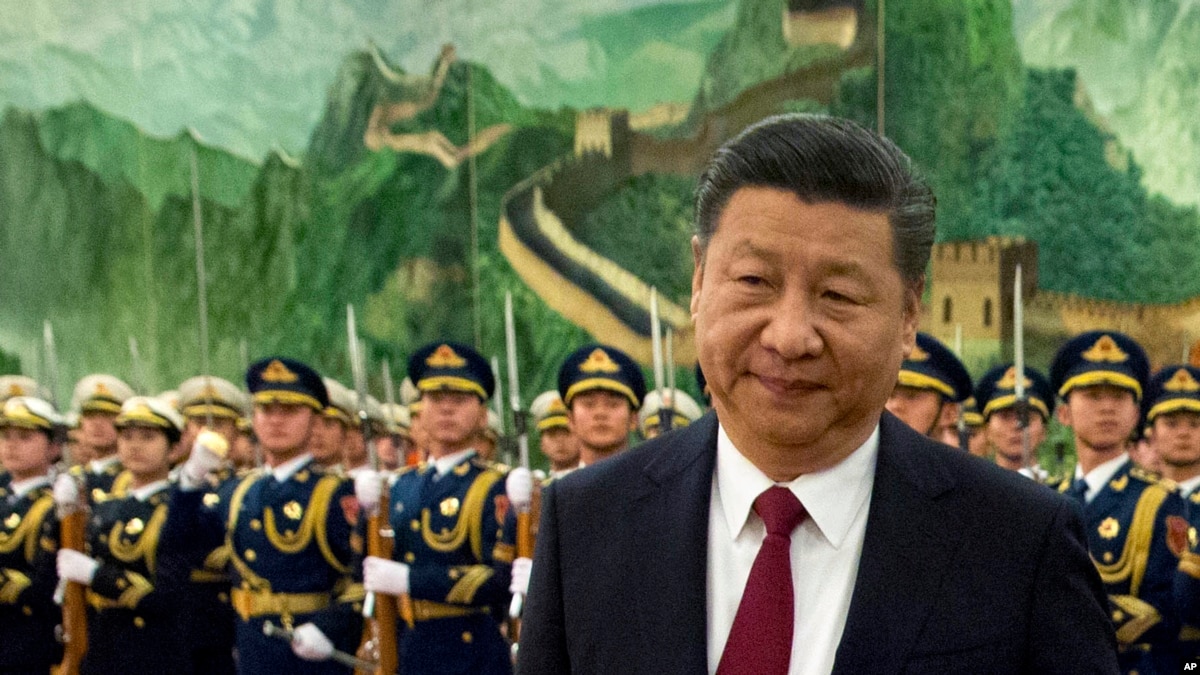
In a rare public expression of dissent in China, a well-known political commentator and a prominent businesswoman have penned open letters urging lawmakers to reject a plan that would allow President Xi Jinping to rule indefinitely.
Their impassioned statements on a popular messaging app were circulated widely after the ruling Communist Party announced a proposal Sunday to scrap term limits on the president and vice president.
In a Monday statement on WeChat to Beijing's members of China's rubber-stamp parliament, Li Datong, a former editor for the state-run China Youth Daily, wrote that lifting term limits would "sow the seeds of chaos."
"If there are no term limits on a country's highest leader, then we are returning to an imperial regime," Li told The Associated Press on Tuesday. "My generation has lived through Mao. That era is over. How can we possibly go back to it?"
Wang Ying, a businesswoman who has advocated for government reforms, wrote on WeChat that the Communist Party's proposal was "an outright betrayal" and "against the tides."
"I know that you (the government) will dare to do anything," she wrote, "and one ordinary person's voice is certainly useless. But I am a Chinese citizen, and I don't plan on leaving. This is my motherland too!"
An official in the information department of the Standing Committee of the legislative body, the National People's Congress, said Tuesday that he was not aware of the open letters.
The congress is all but certain to pass the constitutional amendment when it meets for its annual session early next month, at which it will grant Xi a second five-year term and appoint new ministers and other government officials.
Under the 1982 constitution, the president is limited to two five-year terms in office, but Xi — already China's most powerful leader since Mao — appears to want additional terms to see through his agenda of fighting corruption, eliminating poverty and transforming China into a modern leading nation by midcentury.
Government and party spokesmen have yet to offer any detailed explanations on the reasoning and motivation behind the dropping of term limits. Nor is it clear whether Xi will seek to remain president for life or will only stay on for a set number of additional terms.
Foreign Ministry spokesman Lu Kang said Monday that the proposal "was made in accordance with new situation and the practice of upholding and developing socialism with Chinese characteristics in the new era."
In a commentary Tuesday, the official China Daily newspaper mentioned the proposal to strip out language in the constitution limiting the president and vice president to two five-year terms, saying it was "necessitated by the need to perfect the party and the state's leadership system."
While Chinese censors have moved swiftly to delete any satirical online commentary on the move, a range of opposition views continue to be shared. The Global Times, a newspaper published by the Communist Party, said "outside forces" were trying to challenge the party's leadership.
Read More Xi Term Limit Proposal Sparks Rare Public Dissent in China : http://ift.tt/2F5jEY7Key US Diplomat on North Korea Matters to Retire

Joseph Yun, the U.S. State Department's special representative for North Korean policy, is leaving his post later this week.
State Department spokeswoman Heather Nauert issued a statement Monday saying Yun is retiring on Friday "for personal reasons," and that Secretary of State Rex Tillerson has "reluctantly accepted" the veteran diplomat's decision.
Yun, who also holds the title of deputy assistant secretary of state for Korea and Japan, confirmed his retirement with several news outlets Monday.The 32-year State Department veteran was named special representative for North Korea policy in October 2016 under then-President Barack Obama.
His retirement comes amid signs that Pyongyang may finally be willing to hold direct talks with Washington over the North's development of its nuclear weapons and ballistic missile programs.Yun had strongly advocated direct engagement with the isolated regime, and had been holding regular talks with North Korean diplomats assigned to the United Nations.
Yun travelled to North Korea last June to secure the release of Otto Warmbier, the U.S. college student who was detained for 17 months for stealing a propaganda poster, before he was sent home in a coma with extensive brain damage and died just days after his return.
Yun's unexpected departure creates another crucial vacancy in the U.S. diplomatic corps under President Donald Trump's administration after 13 months in office.President Trump has yet to formally announce an ambassador to South Korea, and several key posts remain unfilled due to an exodus of numerous career diplomats and staffers.
Nauert said the administration's efforts to isolate North Korea under its campaign of "maximum pressure" will continue until Pyongyang agrees to begin "credible talks towards a denuclearized Korean peninsula."
Read More Key US Diplomat on North Korea Matters to Retire : http://ift.tt/2F9gGBWMonday, February 26, 2018
Mumbai’s Legendary LunchBox Carriers Take Waste Food to the Poor

One of the hallmarks of India’s financial capital, Mumbai, is a food delivery system that involves 5,000 lunchbox carriers, who distribute over 100,000 home cooked meals to office workers. These men are now using their food distribution skills to deliver leftover food to the hungry. Anjana Pasricha has this report.
Japan Rejects South Korea Mention of Wartime ‘Comfort Women’ at UN
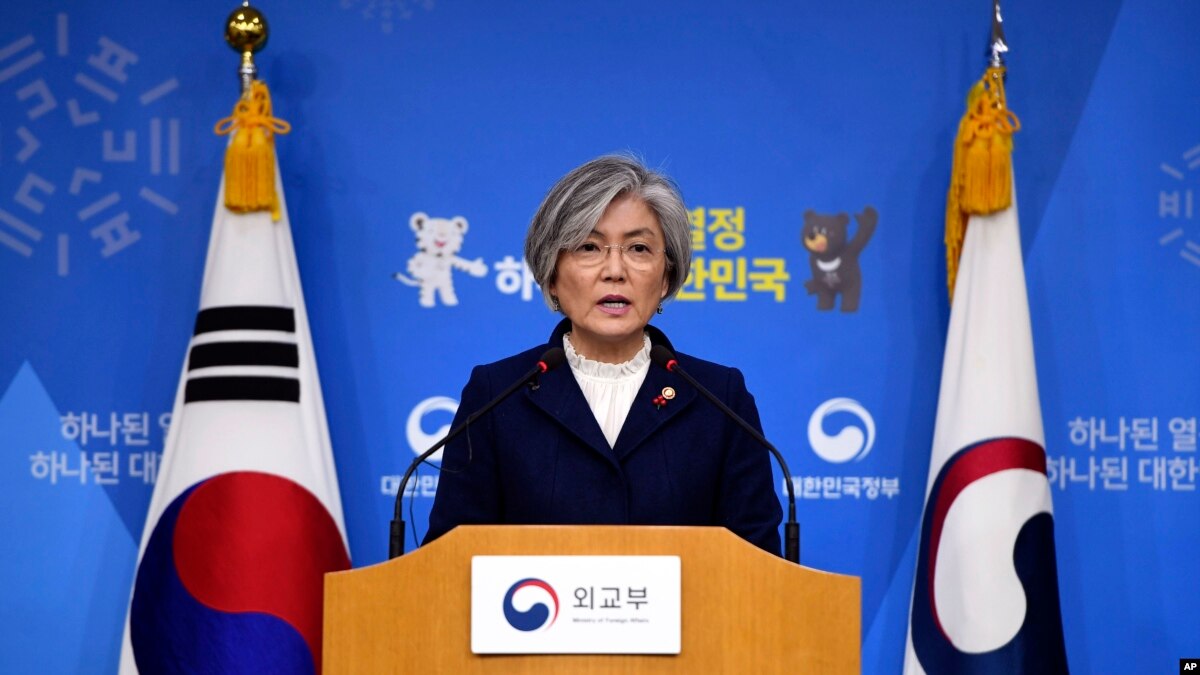
Japan formally complained on Monday after South Korea’s foreign minister raised the issue of wartime “comfort women” at the top U.N. rights body, while warning that it should not be allowed to harm bilateral relations at a critical time in east Asia.
“Comfort women” was Japan’s euphemism for Asian women — many of them Korean — forced to work in its wartime brothels. Under a 2015 deal, Japan apologized to the women and provided a 1 billion yen (now $9.4 million) fund to help them, but South Korea has recently sought to revisit the issue.
The two U.S. allies, who share a bitter history including Japanese colonization, are key to international efforts to rein in North Korea’s nuclear and missile programs.
Kang Kyung-wha, foreign minister of South Korea, did not name Japan directly in her speech to the United Nations Human Rights Council, but called for a “victim-centered approach” to the issue of comfort women.
Kang said that the victims, now women in their 80s and 90s, were “still striving to restore their dignity and honor.”
“My government has humbly acknowledged that previous efforts to resolve the issue had clearly lacked a victim-centered approach ... my government will take steps to help heal their scars and restore their dignity and honor,” Kang said.
Junichi Ihara, Japan's ambassador to the U.N. in Geneva, asked about the call for a victim-centered approach, told reporters: “That is her assessment of their approach.”
“Japan is of the view that Minister Kang Kyung-wha’s bringing up the issue in her statement this morning is totally unacceptable and I myself conveyed our position to (South Korea's) permanent representative here,” he added.
A 2015 bilateral agreement had confirmed that the issue was resolved “finally and irreversibly,” even if a government changes — as it had with the election of South Korean President Moon Jae-in last year — Ihara said.
Some 70 percent of the 47 former South Korean comfort women still alive at the time of the pact had received support from the fund, he said. “Atonement money” had also been provided to former comfort women in the Philippines and Taiwan.
“In view of the importance of our bilateral relations for peace, prosperity and stability in east Asia and beyond, the two countries also have a responsibility to the international community to steadily implement the agreement,” Ihara said.
Kang, in her speech, said that North Korea must heed the call by major powers to abandon its nuclear and ballistic missile programs and allow peace to take root on the divided peninsula.
Read More Japan Rejects South Korea Mention of Wartime ‘Comfort Women’ at UN : http://ift.tt/2BPwisdAfghan Taliban Renew Call for Dialogue With US to End War
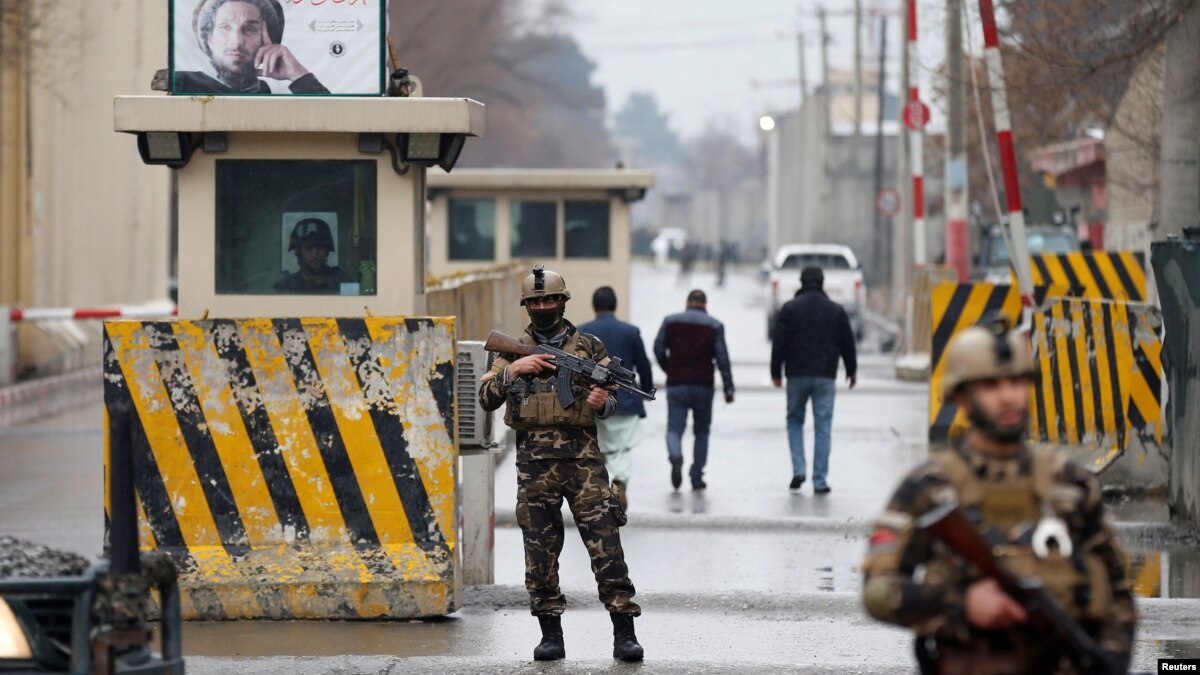
The Taliban urged the United States on Monday to begin talks to end almost 17 years of war in Afghanistan, adding to a series of signals that suggest a greater willingness to explore options for dialogue.
In its statement, two days before the start of a meeting of regional leaders in Kabul to discuss ways of ending the war, the movement said it wanted a peaceful resolution.
“The Political Office of the Islamic Emirate of Afghanistan calls on American officials to talk directly to the Political Office of Islamic Emirate regarding a peaceful solution to the Afghan quandary,” it said.
“It would help in finding a solution if America accepts the legitimate demands of the Afghan people and forward its own concerns and requests for discussion to the Islamic Emirate through a peaceful channel,” it said.
The statement referred to reported comments by Alice Wells, the Principal Deputy Assistant Secretary in the U.S. State Department's Bureau of South and Central Asian Affairs, that the “door is open” for talks with the Taliban.
Taliban statement
Less than two weeks ago, the Taliban issued a statement saying they preferred to “solve the Afghan issue through peaceful dialogue.”
The United States last year stepped up its military assistance to Afghanistan, notably through a sharp increase in airstrikes, with the aim of breaking a stalemate with the insurgents and forcing them to the negotiating table.
While the U.S. military says the strategy has hit the Taliban hard, they still control or contest much of the country.
They also claimed responsibility for two major attacks in Kabul last month that killed or wounded hundreds of civilians and shook public confidence in the Western-backed government of President Ashraf Ghani.
U.S. officials say the only option for an end to the war is a negotiated settlement between the Taliban and the Afghan government.
In an interview this week with Voice of America, Wells said the next meeting in the so-called “Kabul process,” beginning on Wednesday, would aim to make clear that there was the potential for dialogue.
Peaceful solution sought
“I’m confident that the conference is going to push forward regional efforts to enforce what has been our most important message to the Taliban — that the door is open, there is a path to peace and stability.” she said.
But while all sides say they want a peaceful solution and there have been behind-the-scenes contacts, the only major peace talks broke down almost immediately after they started in 2015.
The Taliban, fighting to restore their version of strict Islamic law since they were driven from power in Kabul by a U.S.-led campaign in 2001, have in the past insisted that international forces must leave Afghanistan as a precondition for talks.
Read More Afghan Taliban Renew Call for Dialogue With US to End War : http://ift.tt/2osqygoMumbai's Legendary Lunchbox Carriers Take Waste Food to the Poor
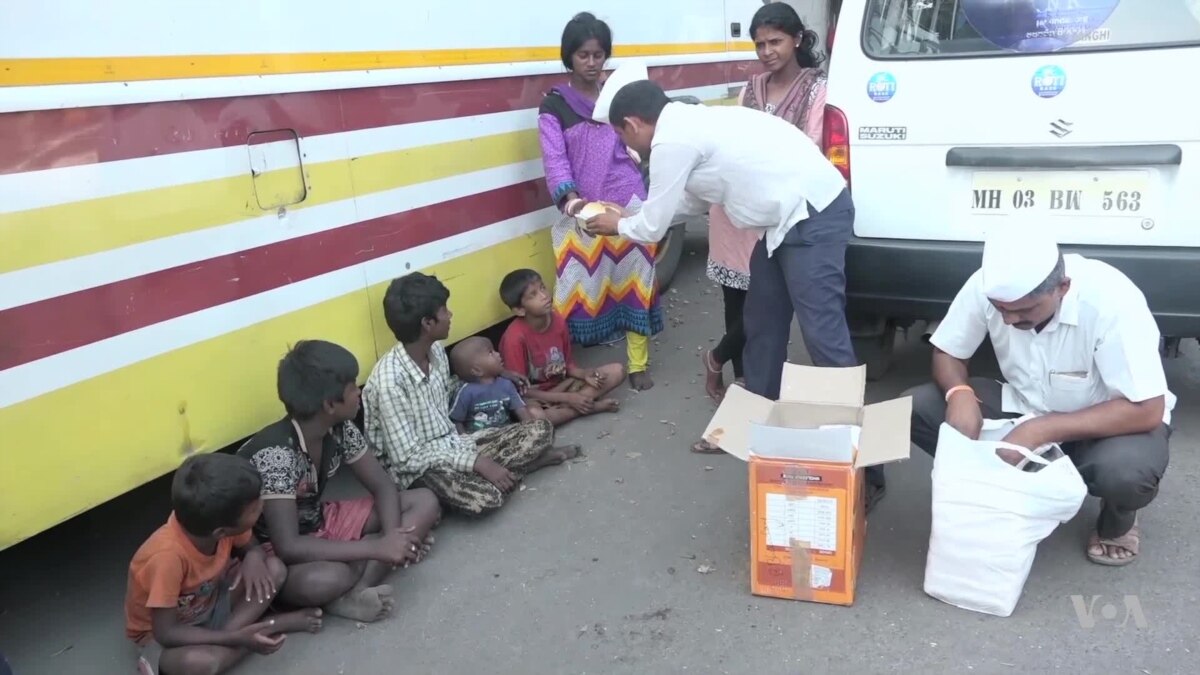
One of the hallmarks of India's financial capital, Mumbai, is a food delivery system that involves 5,000 lunchbox carriers, who distribute over 100,000 home cooked meals to office workers with an efficiency that has been the subject of top business school studies. These men are now using their food distribution skills to deliver leftover food to the hungry.
Called the "Roti" or "Food" Bank, this mini-van stands at a mid-point in Mumbai ready to move whenever a call comes from people hosting marriage parties, to rich households or restaurants. The mission of the "Roti Bank," founded by the city's well-known lunch box carriers or "dabbawallahs" is to pick up leftover food and distribute it to the poor in slums and on the streets.
Subhash Talekar launched the "Roti Bank" after witnessing two dramatically different scenarios as he and his colleagues lugged lunch boxes from homes to offices across the city.
"We saw that rich people throw away their left over food. And we saw the contrasting picture where people slept hungry on footpaths, bridges, outside rail stations," he said.
The appeal by Mumbai's "dabbawallahs" to give them food that would have been thrown away has quickly won traction, partly due to their impeccable reputation for distributing food efficiently.
Jayawanti Thakkar, a resident of a luxury high rise, called them on her birthday after reading about their project in a newspaper.
"It is not easy to trust all organizations. When I came to know that they give the food themselves, then I became confident. This work must be carried forward," she said.
She and her friends have vowed not to allow any food to go waste.
The work has gathered momentum since December after a former police commissioner donated this mini-van because picking up large quantities of food on a cycle was a challenge. Talekar said in a city where a party is always on, they get over 20 calls daily.
"On a day we give food to 400-500 people and on weekends it goes up to a 1000. Having this van has made the numbers grow substantially," he said.
The Food Bank has 200 volunteers.
Although Mumbai's Food Bank distributes only a fraction of the millions of tons of food that is thrown away in the world, the initiative is a step toward bridging the gap between waste and hunger.
Read More Mumbai's Legendary Lunchbox Carriers Take Waste Food to the Poor : http://ift.tt/2ESJVcJMumbai’s Legendary LunchBox Carriers Take Waste Food to the Poor

One of the hallmarks of India’s financial capital, Mumbai, is a food delivery system that involves 5,000 lunchbox carriers, who distribute over 100,000 home cooked meals to office workers with an efficiency that has been the subject of top business school studies. These men are now using their food distribution skills to deliver leftover food to the hungry. Anjana Pasricha has this report.
UN Development Program Names Pakistani A Goodwill Ambassador
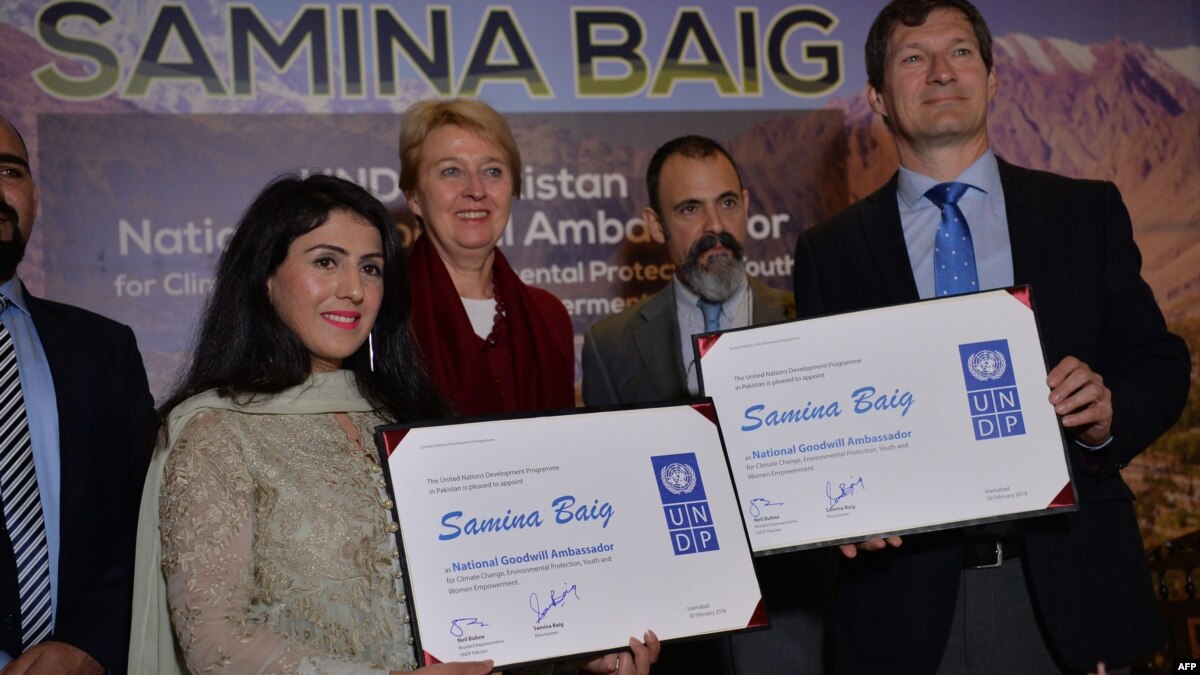
The United Nations development program has appointed the first Pakistani woman to climb Mount Everest as its goodwill ambassador for the country.
A statement issued Monday says Samina Baig will lead efforts to build national awareness and partnerships around the U.N.'s development goals, particularly those related to climate change, environmental protection, youth and women's empowerment.
Born in Gilgit-Baltistan, at the age of 22 Baig became the first Pakistani woman to climb storied mountain. By the time she turned 23, she had climbed the highest mountain on each of the world's seven continents.
She heads the Pakistan Youth Outreach Foundation to encourage youth in outdoor activities.
Neil Buhne, the U.N.'s resident coordinator in Pakistan, said Baig will use her position to shine a light on issues that shape Pakistan's future.
Read More UN Development Program Names Pakistani A Goodwill Ambassador : http://ift.tt/2oz5qUUChristian Blasphemy Suspect in Pakistan Jumps from Building to Escape Torture
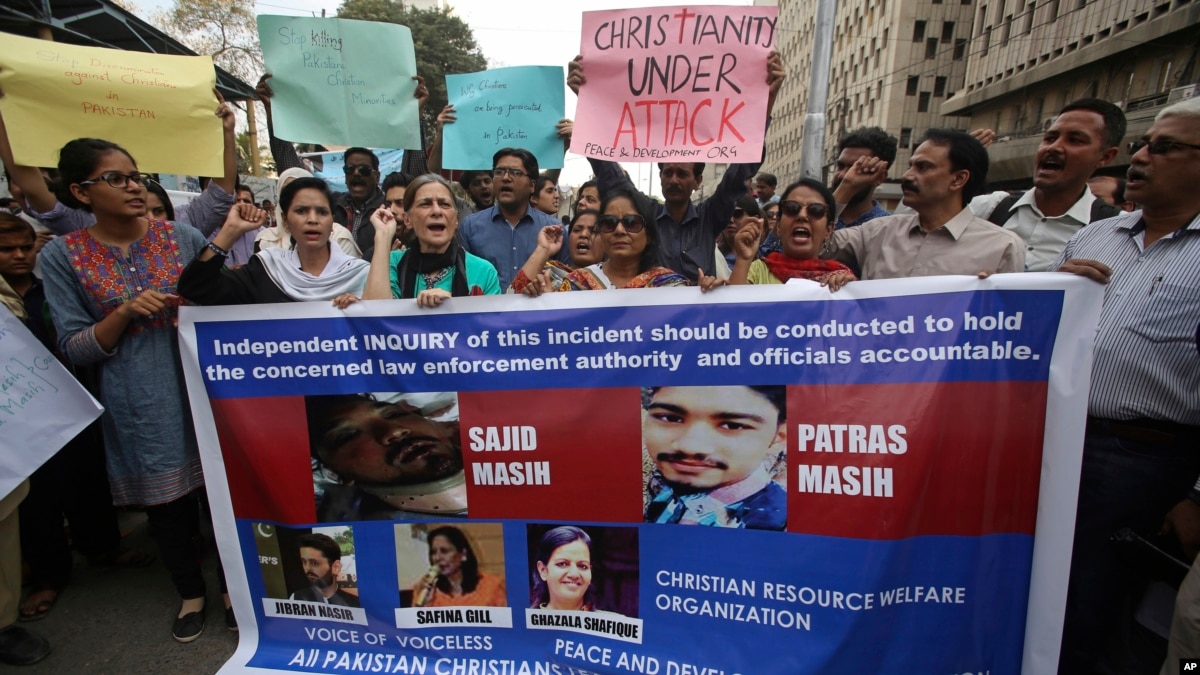
Authorities in Pakistan are investigating reports that a Christian blasphemy suspect jumped from a four-story building and suffered serious injures to escape torture in custody.
Officials and doctors say Sajid Masih is recovering from his "fractured legs and jaw" in a hospital in Lahore where the incident took place on Friday.
Masih and one of his cousins were taken into custody for allegedly posting anti-Islam content on Facebook. They were being probed by cyber crime experts of the Federal Investigation Agency, or FIA, at its main office in the eastern Pakistani city when Masih jumped from the fourth floor of the building.
FIA officials denied charges the man was being tortured or abused, saying "no one had even touched" him. They insisted Masih panicked after "he was asked to unlock his cell phone" for screening.
In a video message circulated and shared via social media, Masih has accused several FIA officers of "severely" torturing him and snatching his cell phone in the process. He alleged the officers were coercing him and his cousin into sexually assaulting one another before he decided to jump from the window.
Dozens of Pakistani human rights groups and activists strongly condemned the incident in a joint statement Monday. They raised serious concerns over persistent misuse of Pakistan's harsh blasphemy laws, specifically against Christian and other religious minorities.
"The law enforcement authorities have not only failed in their duty to protect minorities, but have actively participated in violence against them," the statement said.
The groups called for an independent inquiry into the incident, rejecting the FIA's ongoing internal probe as unacceptable.
They also demanded that area police withdraw the case of attempted suicide against Masih. Activists say they suspect the police case was meant to cover up and protect FIA officers who made the Christian community member jump off the building.
Insulting Islam and its Prophet Mohammad are extremely sensitive issues in Pakistan and can carry the death penalty, although no one has been executed under the blasphemy laws. Right groups say the laws are often misused or exploited to settle personal disputes.
In Monday's joint statement, activists have also demanded authorities take immediate steps for safety and protection of Masih and his relatives. Mere allegations of blasphemy have provoked mob lynchings of suspects or their targeted killings in Pakistan.
Last year,23-year-olduniversity student Mashal Khan was beaten to death byfellow students and others at the campus, accusing him of sharing blasphemous content on social media, charges investigations later determined were false. The incident happened in the northwestern city of Mardan, provoking a nationwide outcry against Khan's brutal killing.
Earlier in February, an anti-terrorism court sentenced one person to death and 30 others to jail terms, including life imprisonment, for their role in the lynching case.
Read More Christian Blasphemy Suspect in Pakistan Jumps from Building to Escape Torture : http://ift.tt/2CJ9dEoEU Prepares New Myanmar Sanctions Over Rohingya Crackdown
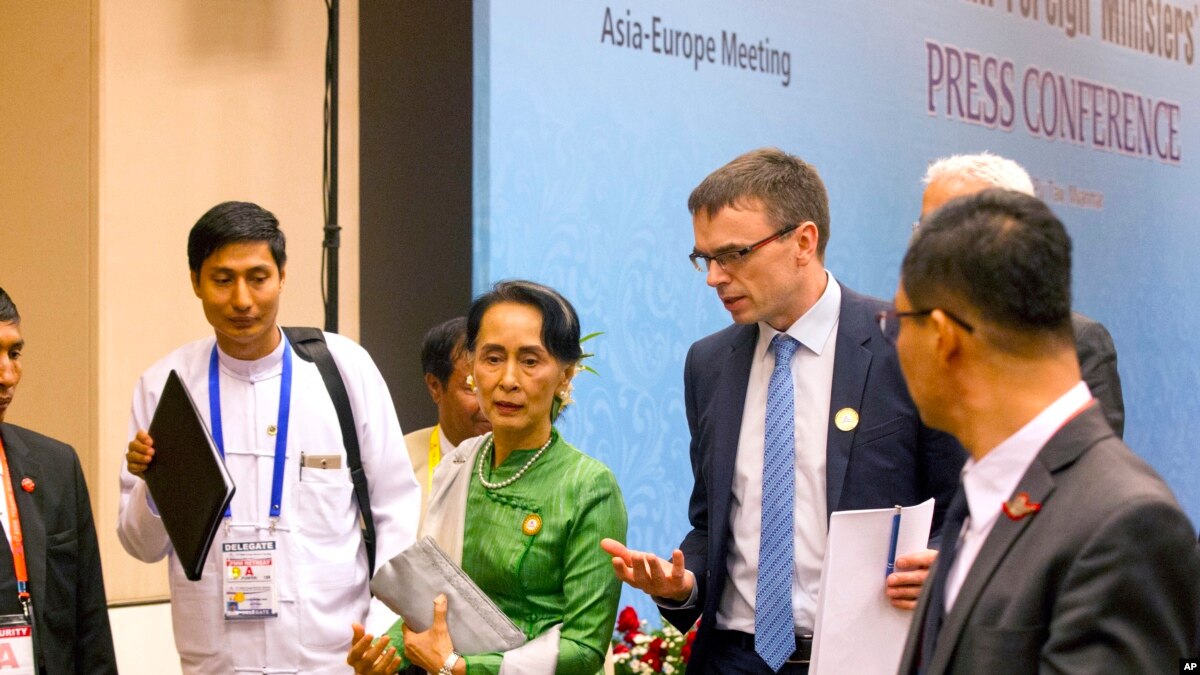
European Union foreign ministers have tasked the EU's top diplomat with drawing up a list of sanctions to slap on senior Myanmar military officers over rights abuses against the Rohingya minority.
The ministers on Monday also ordered EU foreign policy chief Federica Mogherini to propose ways to toughen an EU embargo blocking the provision of arms and equipment that could be used for internal repression.
They said the measures are needed ``in light of the disproportionate use of force and widespread and systematic grave human rights violations committed by the military and security forces.''
About 700,000 Rohingya have fled towns and villages in Myanmar's northern Rakhine state since August to escape a military crackdown.
Negotiations for their return are underway but many fear their safety and well-being are not guaranteed.
Read More EU Prepares New Myanmar Sanctions Over Rohingya Crackdown : http://ift.tt/2ETmlIRDubai Police: Famous Bollywood Actress Sridevi Died from Drowning

Police in Dubai say drowning was the cause of death for famed Bollywood actress Sridevi.
Earlier reports said Sridevi died of a heart attack at the age of 54 on Saturday in Dubai.
Following an autopsy, police say they determined Sridevi drowned in her hotel bathtub following a loss of consciousness.
Sridevi was known for her roles in the 1990s in Indian Hindi romantic drama films, including Chandni, Lamhe, as well as Mr. India and Nagina.
She began working in films as a child.
Read More Dubai Police: Famous Bollywood Actress Sridevi Died from Drowning : http://ift.tt/2BQWoeiChina Removes Online Criticism of Plan to Extend Xi's Rule

Chinese censors are acting quickly to remove satirical comments about the ruling Communist Party's move to enable President Xi Jinping to stay in power indefinitely, while political observers are examining the possibility that China will return to an era of one-man rule.
A day after the party announced proposed constitutional changes for next month, Chinese internet users on Monday found themselves unable to signal approval or disapproval with changes to their profiles. Key search topics such as "serve another term" were blocked.
Nevertheless, social media users shared images of Winnie the Pooh hugging a jar of honey along with the quote, "Find the thing you love and stick with it." The Disney bear's appearance has been compared to that of Xi, prompting periodic blocks on use of Pooh pictures online.
Read More China Removes Online Criticism of Plan to Extend Xi's Rule : http://ift.tt/2EWAxRdSunday, February 25, 2018
Provincial Government in Pakistan Under Criticism for Aiding Controversial School
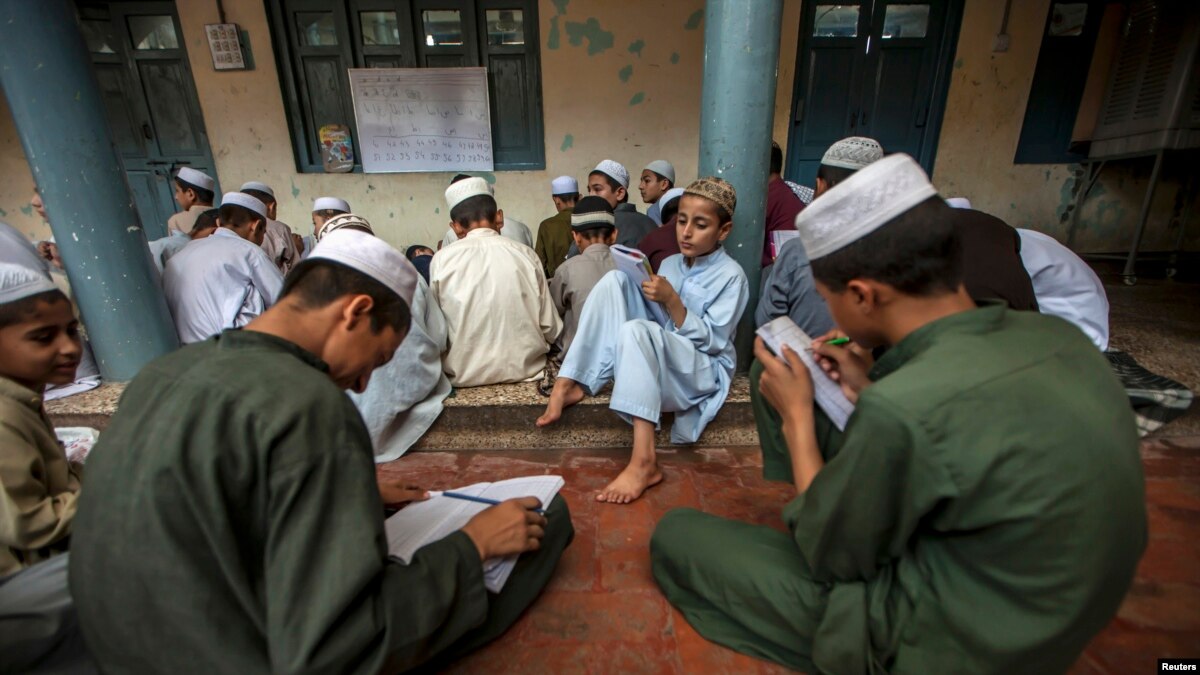
The provincial government of Pakistan's northwest Khyber Pakhtunkhwa province came under sharp criticism for giving an Islamic seminary an estimated Rs.28million ($2,500,000) in aid.
The government, led by Pakistan Tehreek-e-Insaf, used government funds to support Darul Uloom Haqqania, a religious seminary. Pakistani religious schools have long been blamed for producing extremists.
"Government is supporting extremist elements — this will not help any move to curb militancy in the country. And if Pakistan is blamed for supporting militants, this proves it," Syed Alam Mehsud, presidentof nationalist party Wolesi Tehreek, told VOA.
The same provincial government provided Rs.300million ($2,700,000) to the same religious school last year.
The Khyber Pakhtunkhwa government responded to the criticism, asserting that financial aid is necessary to improve the religious schools and equip them to teach modern science.
The move has been criticized on multiple platforms, including the social and political arena. Some critics suspect the Pakistan Tehreek-e-Insaf-led government is using public funds for personal political gain.
It is believed that Taliban leaders, including former Afghan Taliban leader Mullah Omar, attended Darul Uloom Haqqnia, run by Maulana Samiul Haq.
During an interview with Reuters, Haq called Omar "one of his best students."Haq is also known as the "Father of the Taliban." In a 2013 interview with Reuters, he supported the Afghan Taliban.
"Give them just one year, and they will make the whole of Afghanistan happy," he said.
Pakistan-based madrasas
The Afghan government has long blamed Pakistani madrasas (religious schools) for producing extremists, and charge that the increase in violence in Afghanistan has roots in the schools.
"The reason that terrorism still exists in Afghanistan, although Afghan forces have killed thousands of them, are the madrasas on the other side of the Durand Line (the border line separating the two countries) that produce terrorists," General Mohammad Radmanish, a spokesperson for Afghan Defense Ministry, told VOA.
Radmanesh added there are an estimated 10,000 religious schools operating in Khyber Pakhtunkhwa alone, some of which, he claimed, train militants for jihad in Afghanistan.
Afghan officials have long accused Pakistan of turning a blind eye to terrorist groups that train on its soil to carry out terror attacks across the border in Afghanistan. The claim that Pakistan is selective in its crackdown on terror groups.
Pakistan denies these allegations and maintains that its military operations have targeted militants of all kinds.
"Military-led counterterrorism operations have targeted terrorists indiscriminately, including Haqqanis, at a heavy cost of blood and treasure," Pakistan army spokesperson Major-General Asif Ghafoor told VOA following an announcement last year of the Trump administration's proposal to suspend hundreds of millions of dollars in military assistance to Pakistan.
Pakistan under scrutiny
Pakistan has three months to convince the Financial Action Task Force (FATF) that the country is complying with international anti-terrorist financing regulation to avoid being placed on a global terrorist-financing watch list.
In an attempt to demonstrate compliance with FATF regulation, Pakistan amended its anti-terrorism law early February. The change authorized the government to blacklist charities linked to Islamist leader Hafiz Saeed.
Saeed has been wanted by the United States since 2012 for planning the 2008 Mumbai terrorist attacks.
The list also includes Saeed's Jamaat-ud-Dawa (JuD) and its subsidiary, the Falah-e-Insaniat Foundation (FIF), which according to experts, serves as the front organizations for Lashkar-e-Taiba.
Pakistani authorities announced a new program aimed at preventing billions of dollars in public donations to charities from ending up with banned militant groups.
The "Safer Charity" initiative announced two weeks ago urges people to use caution and donate to responsible humanitarian organizations. The move comes amid concerns that some militant organizations are using front organizations to collect money allegedly for humanitarian work.
According to government officials, people in Pakistan donate up to $4.5 billion annually to help the poor and needy as part of fulfilling the religious obligation of almsgiving, or Zakat.
The new program urges citizens to ensure the groups to whom they are donating have not been banned by the government.
Read More Provincial Government in Pakistan Under Criticism for Aiding Controversial School : http://ift.tt/2BRXvKzPowerful Quake Rocks Papua New Guinea

A powerful earthquake has struck the Pacific island nation of Papua New Guinea but no tsunami warning has been issued.
The U.S. Geological Survey says the 7.5 magnitude quake was centered about 90 kilometers south of Porgera, in Enga province.
There were no immediate reports of casualties or damage.
Earthquakes are common in Papua New Guinea, which sits on the so-called "Ring of Fire," a belt of tectonic plates circling the Pacific Ocean with frequent seismic activity.
Read More Powerful Quake Rocks Papua New Guinea : http://ift.tt/2ooUfyWVOA Interview: Sam Nunn says 'Carrots and Sticks' Needed with N. Korea
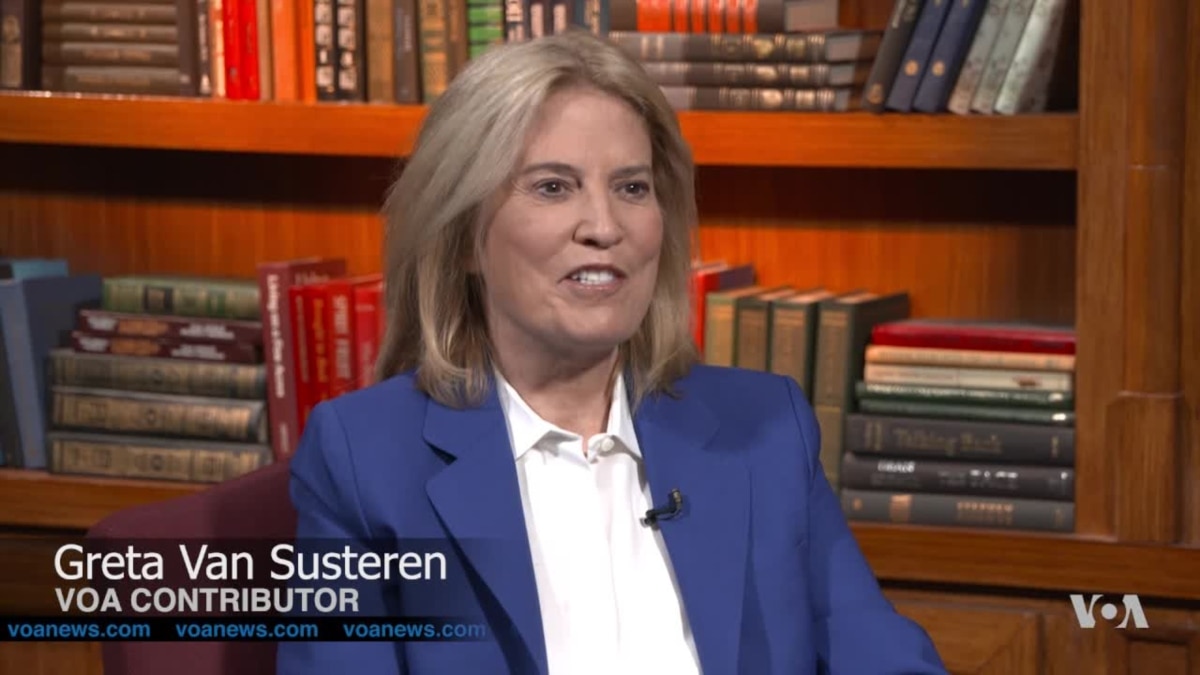
Concerned about a “war by blunder,” Sam Nunn, the former U.S. senator from Georgia who chaired the Senate Armed Services Committee, says he favors “tightening the screws in sanctions” on North Korea, but the U.S. needs to communicate with the country at the same time. In an interview with VOA Contributor Greta Van Susteren, Nunn favors modernizing the U.S. nuclear arsenal, as set forth by the Trump Administration’s Nuclear Posture Review. But Nunn, co-chairman of the Nuclear Threat Initiative, questions the need for developing more low-yield nuclear weapons. Interview was conducted February 20, 2018.
Van Susteren: Senator nice to see you, sir.
Nunn: Good to see you, Greta.
Van Susteren: Senator I want to go back to the Nuclear Threat Initiative and how you began, got involved in this, but I want to go back to 1991 what happened with the fall of the Soviet Union, when the Soviet Union was falling, tell me what you did?
Nunn: Well I was chair of the Armed Services Committee, and Senator Luger was a big player on the [Senate] Foreign Relations Committee and I’m in Budapest, Hungary at a conference with Soviet Union representatives, European representatives. Gorbachev gets taken captive. For three days we wait to see what happens. He gets released, one of our Russian friends who had been at the conference calls me, says: “Come to Moscow, big things are happening.” I went to Moscow, I stayed about four days. I visited with Gorbechev. I watched the debate about the break-up of the Soviet Union. I visited with the “new military leaders” who were loyal to [Boris] Yeltsin and I said to myself on the way back: “This place is coming apart and it’s coming apart with thousands of nuclear, chemical and biological weapons materials and we’ve got to do something about it.” That led to the introduction of what became the Nunn-Luger bill. It passed in late 1991 after a very rough start but three or four months later the House and the Senate went along with it and it became known as Cooperative Threat Reduction, helping the former Soviet Union, not just Russia but the other countries that had nuclear weapons and there were four of them — not just Russia, Belarus, Ukraine and Kazakhstan and they were very big arsenals and we helped all of them over the next ten, fifteen years to try to secure their nuclear weapons and materials. Try to prevent catastrophic terrorism and also to try to give some meaningful role in life to people who weren’t being paid very well — the scientists — that knew how to make a nuclear weapon — that did not know how to support their families.
Van Susteren: Since that point when the Soviet Union fell and the legislature was passed to help contain or help secure nuclear, chemical and biological weapons, has the threat increased or receded?
Nunn: I think the threat of a deliberate all-out war with a major party like Russia — deliberate, I’ll put the emphasis on that — has receded. I think the chances of a war by blunder, or a war because of cyber interference with command and control; a war because the United States and Russia escalate in some region like the Middle East or Ukraine; I think that kind of danger has gone up. And certainly the danger of catastrophic terrorism because the know how — the ability to make a crude nuclear weapon, not necessarily one that could be put up on a missile and fly through space but a crude nuclear weapon that could be put in the back of a truck or in a ship in a port, I think those dangers have gone up. So — deliberate war in my view, has receded, but war by blunder has increased in terms of risk and danger.
Van Susteren: After 9-11 the 9-11 commission said that al-Qaida wanted to get their hands on a nuclear weapon. Obviously the know-how is, as you said, out there. The materials are out there, materials that are insecure in many nations and you’ve got the added part that terrorists often times suicide bombers don’t have that survival instinct. Does that increase your worry, does that make you feel that there is more of a danger or am I being an alarmist?
Nunn: I think there is more of a danger. The basic fundamental thing we have to all understand, in Russia and the United States is Russia and the United States — we have together 90 percent of the nuclear materials. When we’re at each other’s throats, so to speak — when we’re in the Middle East or Ukraine or over the elections, where there is cyber interference here, all of those things make the world inherently more dangerous. The United States and Russia have the huge nuclear arsenals and have a huge responsibility. Unless we’re working together the world gets more dangerous. And then you overlay cyber, you overlay terrorism, you overlay the fact that we’ve got four new countries with nuclear weapons and nine nuclear weapons states now. All of those things in my view have driven up the risk and the danger.
Van Susteren: Do we need as many nuclear weapons as we have? Does the United States have a huge arsenal — far more than we need?
Nunn: The key of survivability — the key is reliability and the key is safe and secure. So as long as we have nuclear weapons we have to have them safe, secure, reliable and in my view — as many as possible for survival, meaning they can take a first attack and still be able to retaliate. That’s what deterrence is. That’s what stability means. So the answer is we can reduce nuclear weapons but we have to do it in concert with what’s going on in Russia and what’s going on in China, so we need to work together. And I’ve said a number of times that if you look at all those dangers, particularly catastrophic terrorism and cyber and so forth, the world is in a race between cooperation and catastrophe and right now, cooperation is not running very fast.
Van Susteren: Modernization. I hear that used all the time. Do we need to modernize our nuclear weapon arsenal or is what we have sufficient?
Nunn: No, I think we need to modernize the arsenal and we need to modernize the infrastructure because you’ve got to have safe, secure and reliable weapons as long as they exist. Schultz, George Schultz, Henry Kissinger and Bill Perry and I all believe we need to reduce the amounts* of nuclear weapons, also make a contribution to having them not proliferate — not spread to other nations and ultimately — we would all like to see a world without nuclear weapons but as long as there are nuclear weapons, America has to have a modern, safe and secure infrastructure and delivery system as well as the weapons themselves.
Van Susteren: Trump administration released in early February the Nuclear Posture Review and this is the first one since the Obama Administration released one in early 2010. Do you know how it’s changed at all or what the difference is between the two?
Nunn: Well, the good news is, as you remember, President Trump during the campaign said two or three times that it would probably be ok for Japan and South Korea and Saudi Arabia to have nuclear weapons — well — those of us in this business — so to speak — were horrified at that because the policy of the United States under every president since World War II has been not to have nuclear weapons proliferate to new countries. It just makes all the dangers greater. But the good news is that in this Nuclear Posture Review it is very clear that United States policy has not changed in that regard. We’re still against proliferation and we still are signed up for the Nuclear Non-Proliferation Treaty, which is enormously important. It’s sort of the pillar of stability in arms control. The other good news is the Administration has said they are not going to test. The bad news is that they are not in favor of ratifying the Comprehensive Test Ban Treaty but at least we’re not going to test. So there are some good developments in here, in the Nuclear Posture Review and there are some things that I think raise very big questions and concerns.
Van Susteren: One of the things that I was reading about was low yield nuclear weapons. And, do we need those? Doesn’t that start sort of an arms race of other nations wanting low-yield nuclear weapons?
Nunn: Well, you don’t want to make nuclear weapons usable. The head of our strategic air command — I’ll call it strategic strike command — that’s old school — Striker Command now — General Hayden — said within the last year in testimony that all nuclear weapons are strategic. There is no such thing as a tactical nuclear weapon. If someone uses a nuclear weapon, the world has changed and the response will probably be strategic. So — I subscribe to that theory and I think a lot of conversation about usability of nuclear weapons — whether it comes from the Russian side, where they have a sort of a worse vocabulary and “escalate to deescalate” I don’t think there’s any such thing as escalating nuclear weapons to deescalate. General Hayden made it clear that he didn’t think that either, so, this is something that really ought to be debated. We’ve always had lower yield nuclear weapons but the terminology in this nuclear posture review seems to indicate that the United States believes to counter Russia’s “escalate to deescalate” we need to have more usable nuclear weapons and new nuclear weapons. So I think that raises serious questions and I think the burden [of proof] is on those who think we need new weapons for that purpose.
Nunn: And particularly, the concern I have is reference to having a small nuclear weapon on a missile on a submarine. These submarines are our most survivable part of the Triad. If we shoot a small nuclear weapon off a submarine, how in the world is Russia or any other country going to know that it’s not the real biggest nuclear weapon we have. And what would we do if everybody goes to that concept? Do we start having small weapons being shot off submarines with that capacity? I think this is a really dangerous move and I think there are serious questions about to be raised on it. Now, on the other hand, there’s also discussion about a cruise missile, a sea launched cruise missile, to counter the Russian violation of INF, which is of grave concern. And I think that one has room for real discussion. But to take one of our, we call them ‘boomers,’ Trident submarines and put a small warhead on it, and act like the other countries would know it’s a small warhead when it’s being fired, to me raises serious questions. The other factor here would be, do we reveal the location of the submarine?
Van Susteren: When we shoot one off, don’t they know where the location…
Nunn: The trajectory would show where it is
Van Susteren: Would show where it is at that point.
Nunn: I would be shocked if they didn’t lay down as many nuclear warheads as they could in that region, even though the sub would move out because they would fire on the sea. But I think this raises some very big stability concerns and I’m hoping Congress will ask these hard questions because this is serious stuff.
Van Susteren: The way, as a non sophisticated person in nuclear technology, the way I see these low yield nuclear weapons is sort of mini nukes, and I don’t quite understand why we need mini-nukes. I guess it’s because if the Russians lob a mini-nuke, low-yield someplace, we want to respond likewise and not use one of the big nukes and take out, something catastrophic. On the other hand, it creates a whole new arms race maybe to me because other countries would want them as well. Secondly, why don’t conventional weapons, why wouldn’t they serve the purpose, can’t conventional weapons answer a low-yield?
Nunn: Yes, I think all of those are relevant questions and good questions. We also already have low-yield. We’ve had low-yield for a long time. We’ve had a weapon you could carry that is this big that we had, ADMs that you put in holes in the ground and fill the gap. So we’ve had them a long time. He real danger is the psychology and when we start advertising as the United States as a country that’s the strongest military in the world that we need a whole new weapons system and we are thinking about having a weapons that is more usable, now those who are for it will argue that they don’t believe you’ll use a big one. Well, I don’t know whether that’s accurate or not. My view, the US and Russia, if we both start talking about usability and you project that on the other seven nuclear powers in the world or nuclear weapons states, I think the world becomes very very dangerous.
Van Susteren: What’s the situation between the United States and Russia, how much notice do we have of each other using these weapons, because I know you’ve been outspoken about that.
Nunn: Well, the United States and Russia have never had much decision time for the leaders. If there was some kind of warning, the President of the United States and the president of Russia don’t have much decision time. You can debate whether its two minutes or five minutes or seven minutes, but the point is we should both be working to increase decision time.
Van Susteren: And especially since there have been mistakes?
Nunn: Absolutely. False warning and as I mentioned before, cyber-attacks, someone simulates and attack, you’ve got a false warning or it interferes with cyber, non-nation states might interfere with cyber command and control. And so I think the lack of decision time is fundamental and it would be my view the worlds would be a lot safer if we, the United States president and the Russian president and hopefully the other nuclear weapons states will say to their military commanders ‘go off and get in a room with each other and come back and give us more decision time. If we have five minutes now, give us 10 minutes before we have to either use them or lose them and when we get to 10 minutes, go to 20 and then 20 to an hour, to a day to a week and then nuclear weapons become less relevant and guess what? If they become less relevant, then we can begin and decrease the numbers of nuclear weapons. But if we make nuclear weapons more and more relevant, and that’s the big question in this posture review, are we making them more relevant or are we making them, for instance, there’s an implication in the nuclear posture review that’s just come out, that we might respond to a non-nuclear attack with nuclear weapons if it’s a cyberattack, a major cyberattack. Well, this raises questions about attribution. Do we really know where it came from and then we have to ask the question: if the other eight countries do the same thing, now we’ve got nuclear weapons around the world responding to a major cyberattack, how do we know it’s not third parties, how do we know who it is? So we don’t want to go down that route unless we ask some very serious questions and in my view, have discussions with the other nuclear weapons states. Communications in this era is very important because all nuclear weapons states have grave dangers facing them and if we don’t have some rules of the road in the cyber world, if we don’t have rules of the road on decision time, then I really fear for the future of our children and grandchildren.
Van Susteren: It seems more perilous to me listening to you than back in 1991 when you were securing the military weapons the Soviet Union had, when you interject the dangers of cyberterrorism, I mean the world’s gotten profoundly dangerous that way.
Nunn: I think it has, but that was a period of, maximum danger because you had an empire coming apart with thousands of nuclear weapons, tons of chemical weapons and they had scientists and technicians that didn’t know how to feed their families, but they had this knowledge and possession of the weapons, so that was a danger of terrorism, of the weapons leaking. The long pole in the tent for any terrorist who wants to blow up a crude weapon, a nuclear weapon, is getting the nuclear materials. And at that stage, nuclear material was much looser and less protected than they are now. The good news is that we are the world is doing a much better job of protecting nuclear materials. We’ve got a long way to go but progress has been made on that front under both Republican and Democratic presidents.
Van Susteren: Alright, we’ve had situations like AQ Khan in Pakistan essentially being the Walmart of nuclear technology and peddling that to different places, but North Korea is getting it from someplace. Where is North Korea getting its nuclear material?
Nunn: Well, I would assume that would come from multiple sources. Perhaps back in the old days, China, perhaps Russia, perhaps Pakistan, you know the arms bazaar that came out of Khan in Pakistan, so various sources I’m sure/ But North Korea is a ticking time bomb. And the danger in North Korea is not only North Korea itself, but what happens in terms of the temptation of South Korea or Japan or other countries in the region having their own nuclear weapons and that’s the nightmare. The more nuclear countries you have, the greater the danger.
Van Susteren: It seems that we’ve had 70 years with the Russia and US having nuclear weapons, give or take, and we’ve had no nuclear incidents, with some near misses in that there’s been a false alarm but nothing happened. North Korea, we don’t have that track record and we have a threatening president of North Korea who’s tested nuclear weapon, he’s tested an ICBM, and we don’t have that relationship that we had, that you had back then with the Soviet Union.
Nunn: We did talk to the Soviet Union during the days of great tension, we always had communications with them.
Van Susteren: So what about this with North Korea?
Nunn: I think we need carrots and sticks with North Korea. I’m in favor of tightening the screws on sanctions but also think we need to communicate with North Korea. We don’t want nor should any country want a war by blunder. We can’t have that. It’s a mistake because the atmosphere is so poisoned, and the rhetoric on both sides, which has calmed down recently, because perhaps of the Olympics, makes everything more dangerous it makes mistakes more likely by people out there manning the radar systems that are basically controlling the weapons. So there, the rhetoric is important. Even if you don’t agree, I think talking is essential, if for nothing else, to make sure we don’t misinterpret each other and get into a war nobody wants.
Van Susteren: It sure feels dangerous.
Nunn: It is.
Van Susteren: Senator, nice to see you. We miss you in the US Senate.
Nunn: Good to be with you. Thanks.
Read More VOA Interview: Sam Nunn says 'Carrots and Sticks' Needed with N. Korea : http://ift.tt/2BPCmRuSearch
Featured Post
Rubin Museum, Haven for Asian Art, to Close After 20 Years - The New York Times
It is the first major art museum in New York to close within recent memory. The museum had financial challenges and has faced accusations o...

Postingan Populer
-
asianpostmedia.blogspot.com Ex-CEO John Clendening slams his former employer for allegedly rewriting history to fend off attack from activi...
-
Merdeka.com - Tahun lalu, organisasi teroris ISIS yang menguasai sebagian wilayah di Suriah dan Irak berhasil digempur. ISIS kehilangan wi...
-
asianpostmedia.blogspot.com With restaurant closures and stay-at-home guidelines, you are likely cooking at home a lot more than you are us...